#this is the plot of a psalm for the wild built
Text
Book recs: Queer science fiction, part 1
There is a lot of queer sf out there, and I read a lot of sf. When I started working on this list, I quickly realized it was impossible to include all that I've read and enjoyed in one single rec post. Thus, this is the first of so far three queer sci-fi book rec posts.
A note: queer here does not necessarily mean "guarantee of an f/f or m/m ship with a happy ending", but rather simply a significant presence of queerness. Some of the books feature no romance but has a same gender attracted/trans/a-spectrum lead, or features an m/f relationship with bisexual, trans or aro/ace characters, or simply features a world-building which is heavily queer inclusive in ways that don't always compare to our own ideas of sexuality and gender. I have however disqualified works where the only queer presence is along the lines of "gay best friend" or a blink and you'll miss it confirmation that never comes up again.

Previous book rec posts:
Really cool fantasy worldbuilding, really cool sci-fi worldbuilding, dark sapphic romances, mermaid books, vampire books, many worlds: portal fantasies, many worlds: alternate timelines, robots and artificial intelligences, post- and transhumanism, alien intelligences
For more details on the books, continue under the readmore. Titles marked with * are my personal favorites. And as always, feel free to share your own recs in the notes!

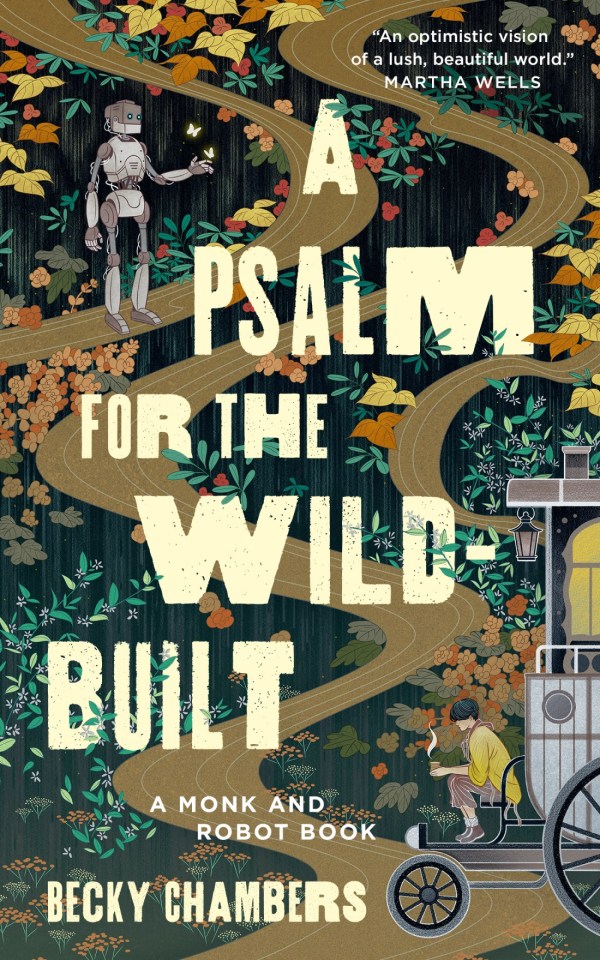
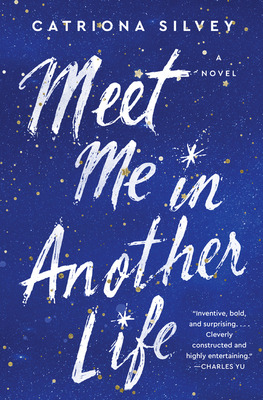
The Light Brigade by Kameron Hurley*
Dietz is a soldier in the war between Earth and Mars - to travel to the battle front, she and her fellow soldiers are broken down into light to be able to quickly travel across space. But something keeps going wrong with Dietz's travels; her memories don't match up with the mission briefs, as she experiences time itself turning in on itself. Is she going mad? Or are the things she's learning skipping through time the truth - and the war that's stealing her life the lie? A mindfuck of a book that's scathing in its critique of fascism and war. Features a sapphic lead but no romance.
A Psalm for the Wild-Built (Monk and Robot duology) by Becky Chambers
Novella. Long ago, robots, upon gaining sentience, simply laid down their work and walked into the wilderness. Long after, a tea monk looking for purpose follows after them into the wilds, where they come across one of the robots seeking its own sort of answers. While not plotless, this story focuses more on character and vibes over plot. Also has a nonbinary main character and features conversations on gender between human and robot.
Meet Me In Another Life by Catriona Silvey*
Thora and Santi are strangers, brought together by a coincidence and torn apart just as abruptly when tragedy strikes. But this is neither the first nor the last time they meet - again and again they encounter each other, as friends, lovers, enemies, family, every time recognizing in each other a familiarity no one else carries. But with every new life, a mysterious danger grows ever closer, forcing them to find out the truth of their connection. This is a puzzle-box of a story that goes some entirely unexpected places in a very wild ride, featuring a bisexual co-lead.
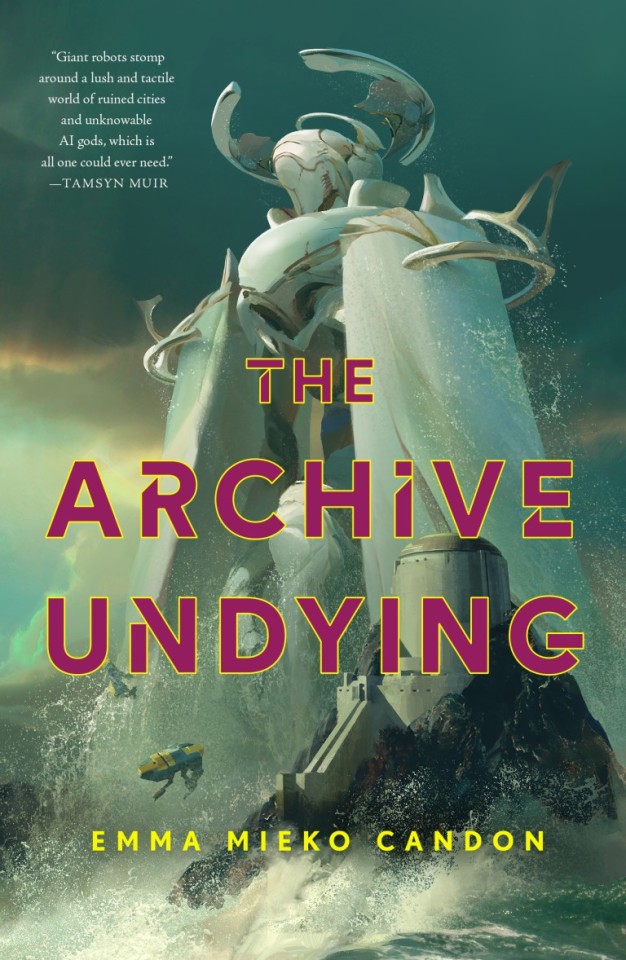
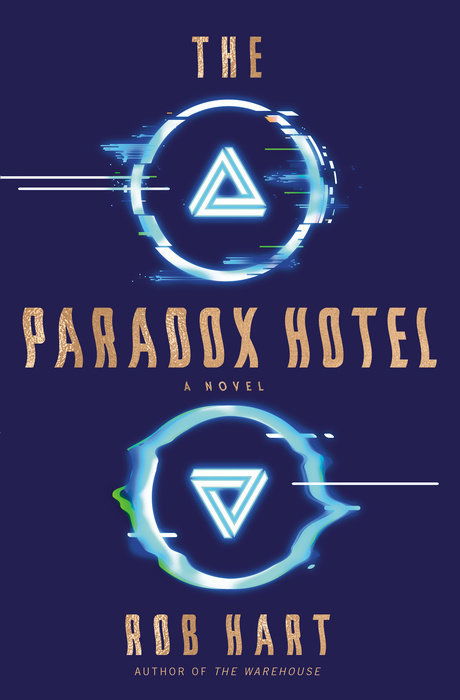
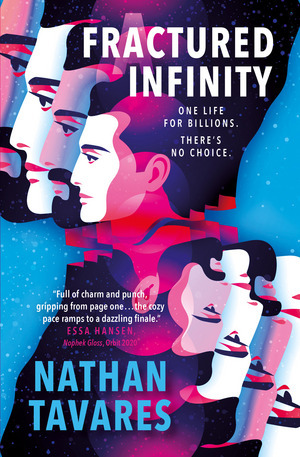
The Archive Undying (The Downworld Sequence) by Emma Mieko Candon
In a world where AI gods sometimes lose their minds and take entire populations down with them, Sunai was the only survivor when his god went down. In the 17 years since, he has wandered on his own, unable to either die or age, drowning his sorrows in drink and men. But his attempts to flee his past comes to a stop as he is forced back into the struggle between man and machine. Featuring some pretty wild world building and narrative techniques, this book will definitely confuse you, but it is worth the experience.
The Paradox Hotel by Rob Hart
January Cole works security at the Paradox Hotel, last stop for tourists heading for the timeport, which allows them to travel to and witness any moment in time. But years of proximity to the timeport has left its damage on January, making her unstuck in time, letting her relive memories of her dead lover even as her sanity slips away bit by bit. As she starts witnessing proof of a horrible crime in the hotel that no one else can see, January must race against her own mind, a killer, and time itself to solve it before it's too late.
A Fractured Infinity by Nathan Tavares
Hayes Figueiredo is a struggling film-maker who wants to finish his documentary, whose life gets turned upside down when handsome physicist Yusuf Hassan enters his life, claiming an alternate version of him is a great inventor who’s sent a mysterious device to their universe. As Hayes gets drawn deeper into the conspiracy - and his feelings for Yusuf intensify - he has to decide just how far he’s prepared to go to win the life and the love he wants. Featuring a very gay and very morally dubious lead, this is a creative and strange read.

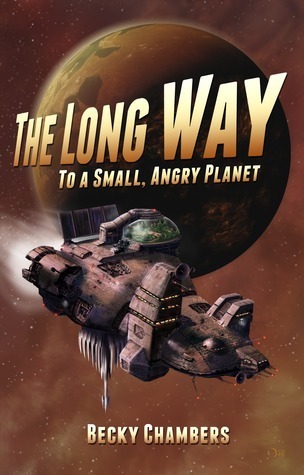
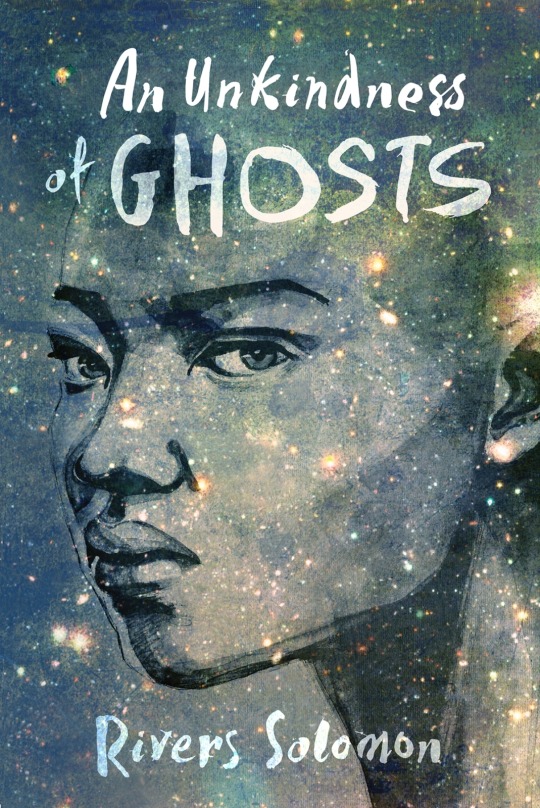
Bridge by Lauren Beukes
When she was little, Bridge and her mother Jo used to play a game - one where they traveled to other worlds, inhabiting the bodies of their other selves. Now Jo is dead, and as Bridge is cleaning out her apartment she finds a strange device: a dreamworm, the very thing that supposedly makes inter-dimensional travel possible. Suddenly faced with the possibility that multiverse travel is real, Bridge is struck by a different question: could her mother still be alive? Scifi spiced with a healthy dose of body horror and some absolutely wild twists, Bridge also features a bisexual lead (however this is a blink and you’ll miss it moment) and a nonbinary co-narrator.
The Long Way to a Small, Angry Planet (Wayfarers series) by Becky Chambers
Rosemary Harper just got a job on the motley crew of the Wayfarer, a spaceship that works with tunneling new wormholes through space. With a past she wants to leave behind, Rosemary is happy to travel the far reaches of the universe with the chaotic crew, but when they land the job of a life time, things suddenly get a lot more dangerous. A bit of a tumblr classic in its day, this is a cozy space opera with an episodic feel and vividly realized characters and cultures. While pretty light on romance and focusing found family, there is a main f/f relationship.
An Unkindness of Ghosts by Rivers Solomon
Life on the lower decks of the generation ship HSS Matilda is hard for Aster, an outcast even among outcasts, trying to survive in a system not dissimilar to the old antebellum South. The ship's leaders have imposed harsh restrictions on their darker skinned people, using them as an oppressed work force as they travel toward their supposed Promised Land. But as Aster finds a link between the death of the ship's sovereign and the suicide of her own mother, she realizes there may be a way off the ship.
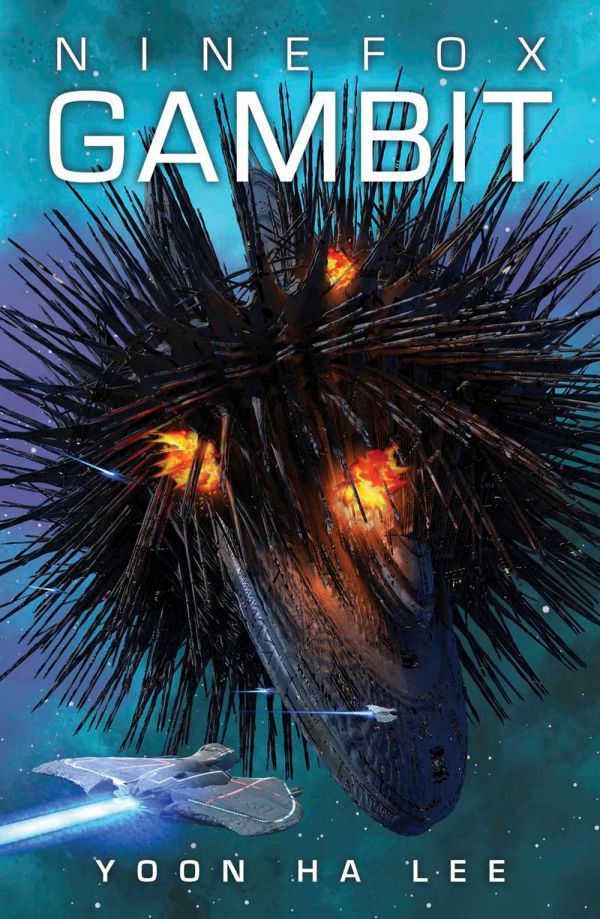
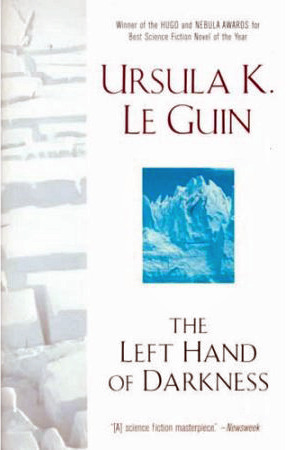
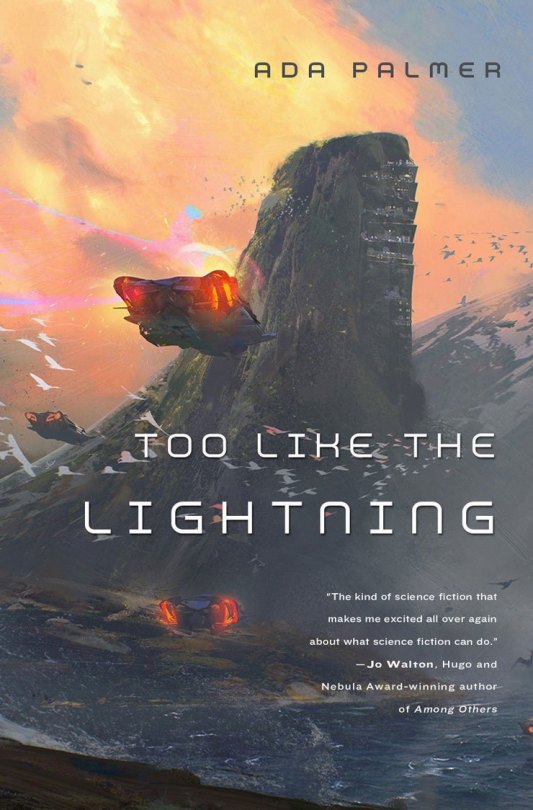
Ninefox Gambit (The Machineries of Empire trilogy) by Yoon Ha Lee*
Military space opera where belief and culture shape the laws of reality, causing all kinds of atrocities as empires do everything in their power to force as many people as possible to conform to their way of life to strengthen their technology and weapons. It’s also very queer, with gay, lesbian and trans major characters, albeit little to no romance.
The Left Hand of Darkness (Hainish Cycle) by Ursula K. Le Guin
1969 classic. Genly Ai is an emissary sent to the planet of Winter, meant to help facilitate Winter's inclusion in a growing intergalactic civilization. But he's unprepared for Winter's citizens, who spend much of their time genderless or switching between genders, making for a culture wildly different from that Genly is used to.
Too Like the Lightning (Terra Ignota series) by Ada Palmer*
Centuries in the future, humanity has deliberatly engineered society to be as utopian as possible, politically, socially, sexually, religiously. Written in an enlightenment style and featuring questions of human nature and whether it’s possible to change it, and what price we’re prepared to pay for peace, this book is simultaneously very heavy and very funny, and written in a very unique style. While still human, the society presented often feels starkly alien.
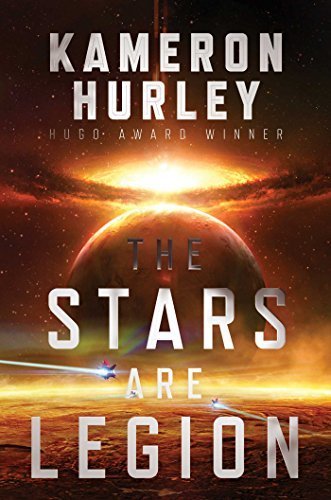
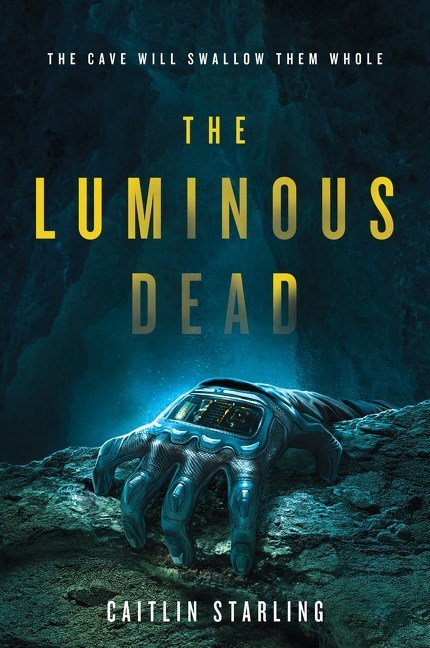
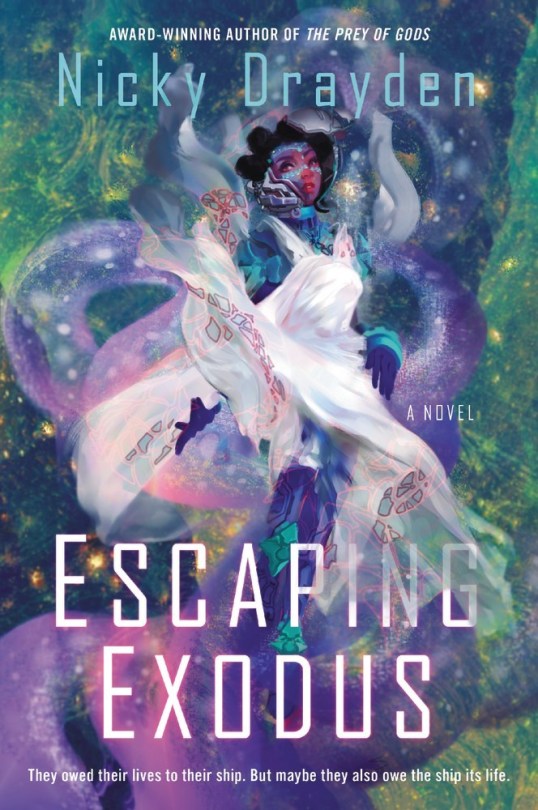
The Stars Are Legion by Kameron Hurley
This book fucked me up when I read it. It’s weird, it’s gross, there’s So Much Viscera, there are literally no men, it has living spaceships and biotech but in the most horrific way imaginable. Had I to categorize it I would call it grimdark military sf. It’s an experience but not necessarily a pleasant one.
The Luminous Dead by Caitlin Starling*
Possibly one of the most unsettling books I’ve ever read, and definitely the most claustrophobic. Gyre, a caver on an alien planet, ventures into the dark and dangerous underground, guided only by a woman who has no compunctions on using and manipulating Gyre as she sees fit to obtain her secretive goals down in the caves.
Escaping Exodus (Escaping Exodus series) by Nicky Drayden
While my feelings on Escaping Exodus were mixed, it cannot be denied that the dynamic between the two leads and the way they go from childhood best friends to enemies on different sides of a class and power struggle is very delicious. It also features some really cool worldbuilding of living, alien generation spaceships and the human culture that has developed inside them.
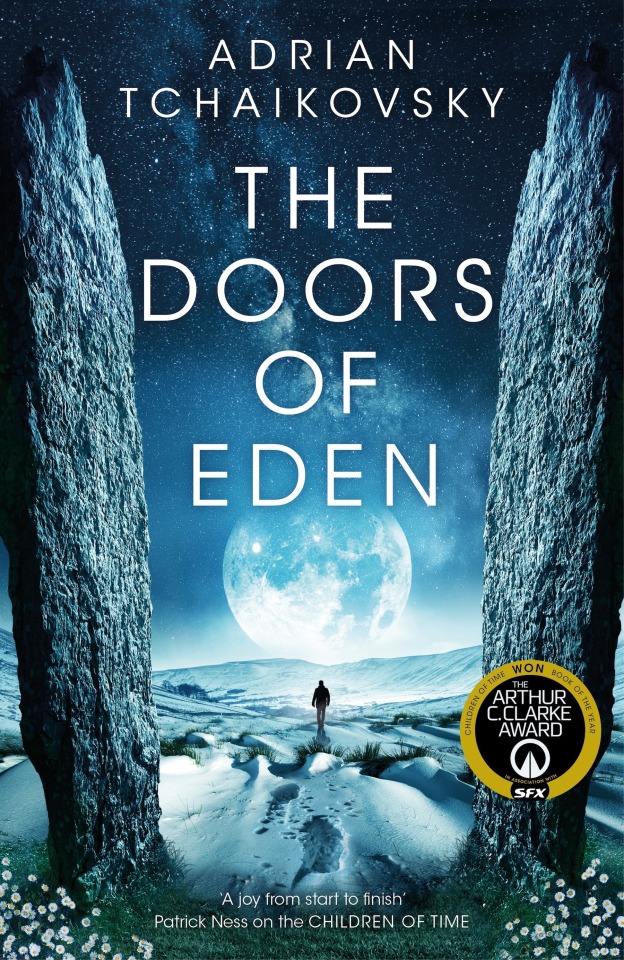
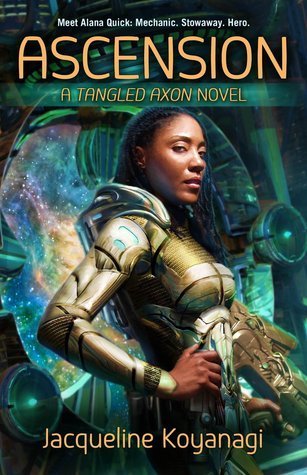
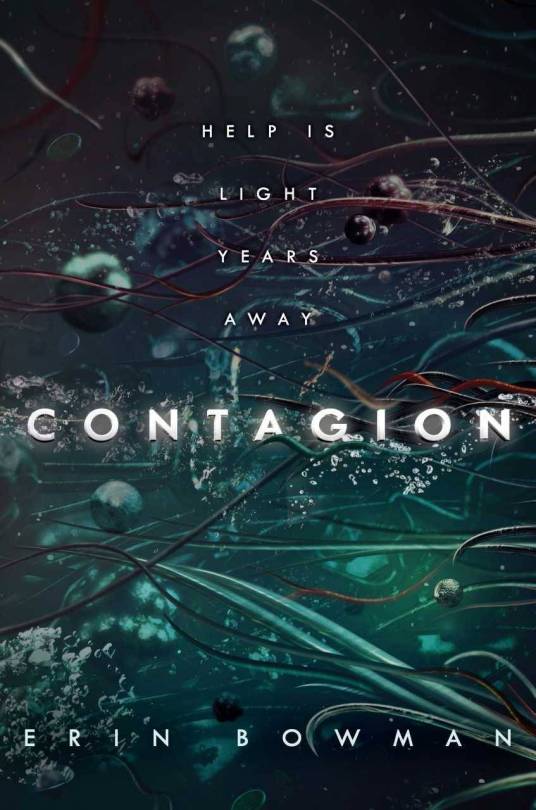
The Doors of Eden by Adrian Tchaikovsky*
The Doors of Eden is something of an experiment in speculative biology, featuring versions of Earth in which various different species were the one to rise to sentience, from dinosaurs to neanderthals. Now, something is threatening the existence of all timelines, dragging multiple different people and species into the struggle, among those a pair of cryptid hunting girlfriends and a transgender scientist.
Ascension by Jacqueline Koyanagi
Ascension follows Alana Quick, an expert Sky Surgeon who stows away on a spaceship in hopes of landing herself a job. But the ship and its crew are in deeper waters than she expected, facing threats emerging from a whole other universe, all of them searching for the same person: Alana’s spiritually enlightened sister. Undeniably a bit of an odd read, Ascension is also very creative and features polyamorous lesbian relationship.
Contagion (Contagion duology) by Erin Bowman*
Young adult. After receiving an SOS, a small crew is sent on a standard search-and-rescue mission. But what they find are not survivors awaiting help, but an abandoned site, full of dead bodies and crawling with something... monstrous. No romance, but features one sapphic co-lead and one who can easily be read as demisexual (however this doesn't show up until book two, which has more romance).
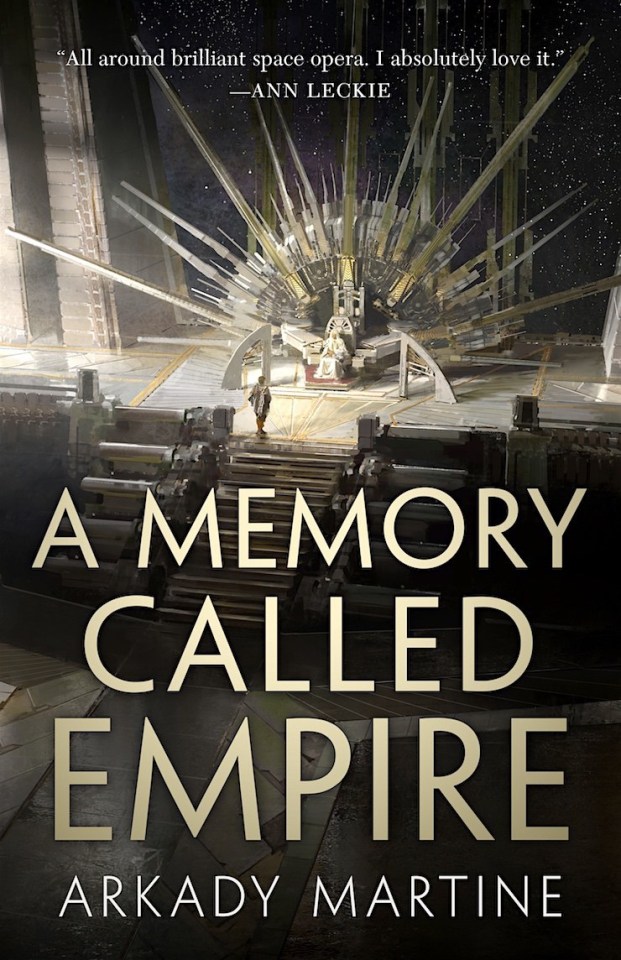
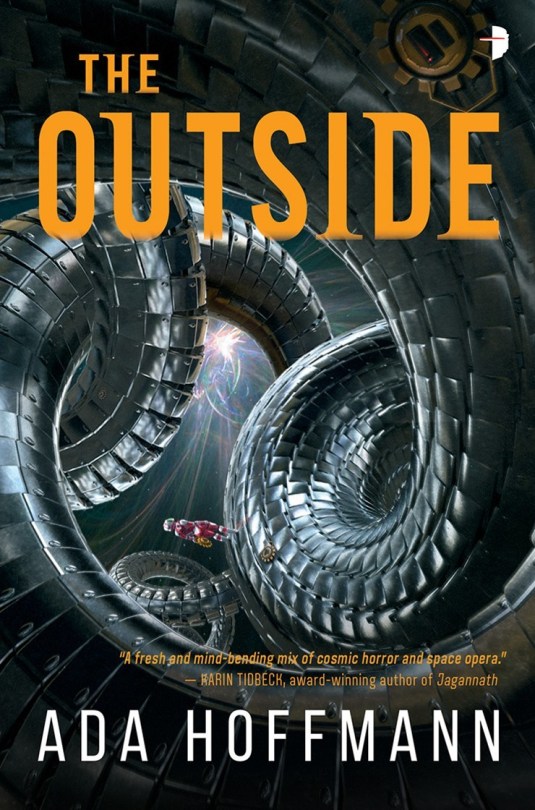
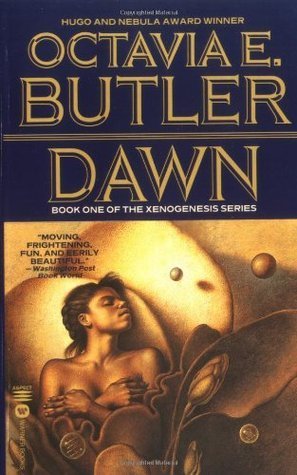
A Memory Called Empire (Texicalaan duology) by Arkady Martine
Mahit Dzmare is an ambassador sent to the center of the multi-system Teixcalaanli Empire, where she discovers that her predecessor has died. Trying to protect her home, an independent mining station, from being taken over by the empire, Mahit struggles to find out the truth of her predecessor's death while carrying the voice of his ghost in her head, guiding her as best he can. Light on the romance but does feature a sapphic relationship.
The Outside (The Outside trilogy) by Ada Hoffman*
AKA the book the put me in an existenial crisis. Souls are real, and they are used to feed AI gods in this lovecraftian inspired scifi where reality is warped and artifical gods stand against real, unfathomable ones. Autistic scientist Yasira is accused of heresy and, to save her eternal soul, is recruited by post-human cybernetic ‘angels’ to help hunt down her own former mentor, who is threatening to tear reality itself apart. Sapphic main character.
Dawn (Xenogenesis trilogy) by Octavia E. Butler*
After a devestating war leaves humanity on the brink of extinction, survivor Lilith finds herself waking up naked and alone in a strange room. She’s been rescued by the Oankali, who have arrived just in time to save the human race. But there’s a price to survival, and it might be humanity itself. Absolutely fucked up I love it I once had to drop the book mid read to stare at the ceiling and exclaim in horror at what was going on. Queer in the sense that the Oankali doesn't follow human ideas of gender and relationships, which is mirrored in their romantic relationships with humans. It is, however, pretty dark, with examinations of agency and consent, so enter with caution.
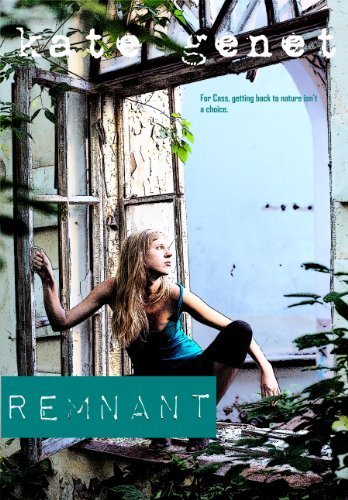
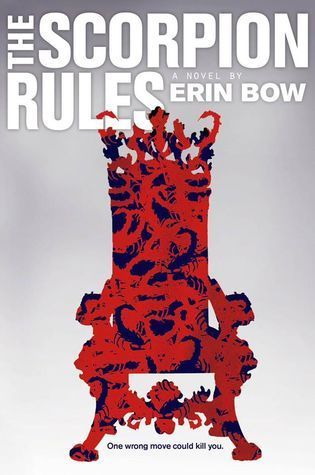
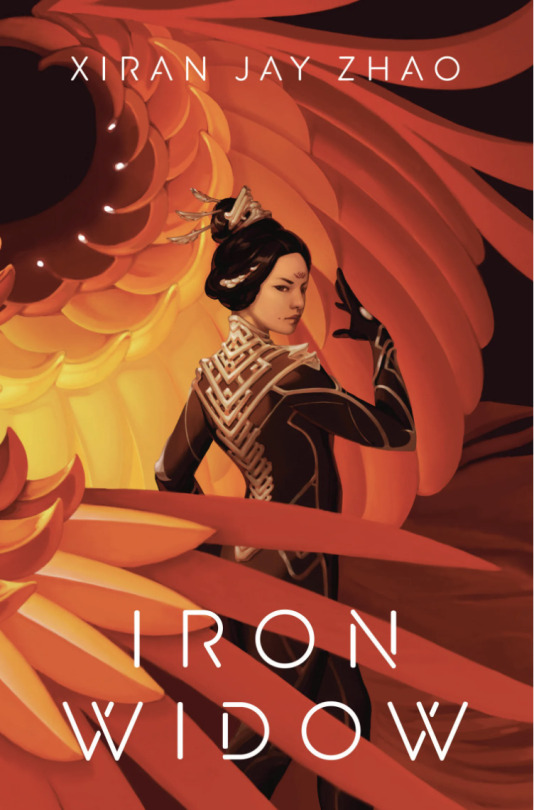
Remnant by Kate Genet
One day, Cass wakes up and finds everyone else is gone. Not dead, just gone, leaving her in a world which nature starts taking back with a dangerous, unnatural speed. But as she tries to survive this new normal, Cass realizes she may not be alone after all - but who else is out there, and are they a threat?
The Scorpion Rules (Prisoners of Peace duology) by Erin Bow*
Young Adult. Featuring a dystopian future in which an AI forcibly keeps world peace by holding the children of world leaders hostage. If anyone attempts to start a war, their child will be executed. Greta is one of these children, kept in a school with others like her. But things start to change one day when a new, less obedient hostage arrives. A unique, slowburn take on the YA dystopian craze, also featuring a bisexual love triangle.
Iron Widow (Iron Widow series) by Xiran Jay Zhao
Young adult. Zetian is a citizen of Huaxia, where mecha aliens are constantly trying to breach the Great Wall. To keep them at bay, couples of men and women pilot so called Chrysalises, giant transforming robots. But the pilots are not equal - the women almost always die, sucked dry by their co-pilots. When Zetian sets herself up to become a concubine-pilot, she does so with the plan to assassinate the male pilot who caused her sister's death. Features a polyamorous main relationship.
Bonus AKA I haven't read these yet but they seem really cool:
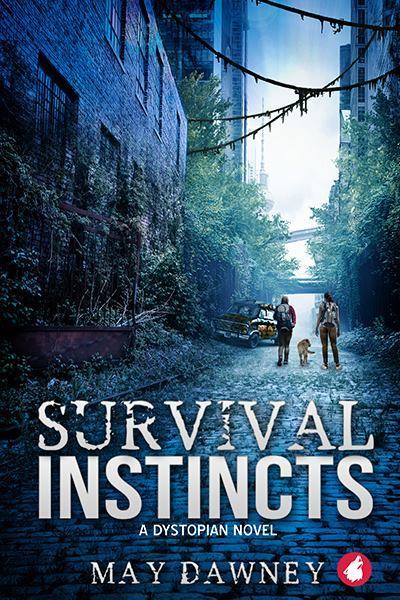
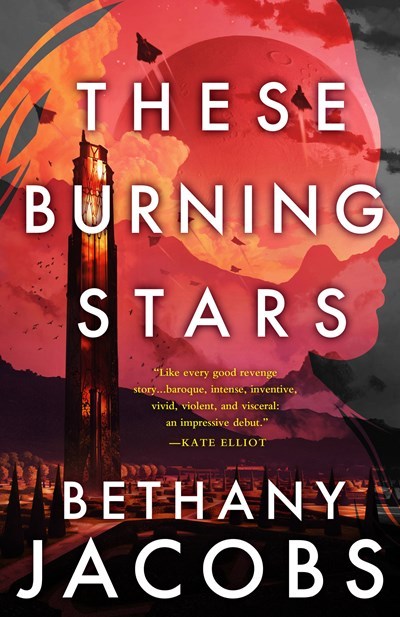
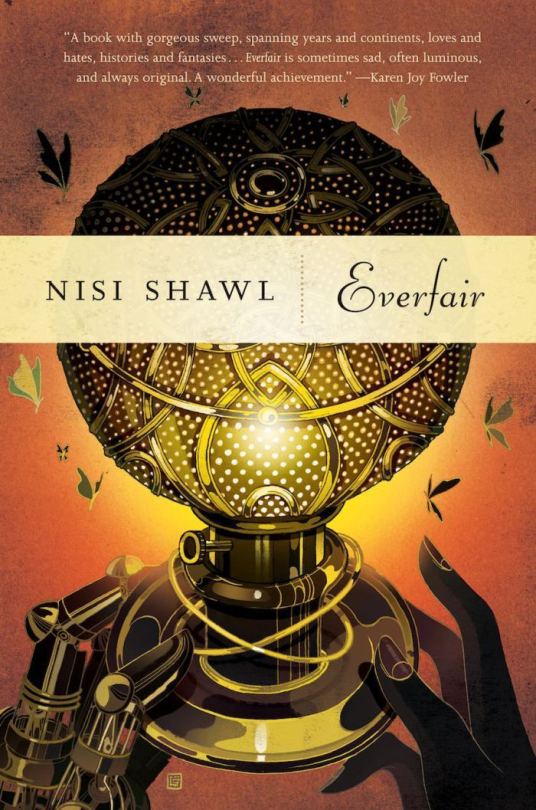
Survival Instincts by May Dawney
Lynn Tanner has been surviving the post-apocalypse alone with only her dog for a long time, trusting no one. But when she's forced to travel the dangerous remains of New York City alongside another woman, her priorities are challenged. Is staying alone really the best way to stay alive?
These Burning Stars by Bethany Jacobs
When con-artist Jun Ironway gets her hands on possible proof of the powerful Nightfoot family, controllers of interplanetary travel, committing genocide, she has in her hands a chance of taking them and their monopoly down. But the family and their allies won't go down easily, and sends two brutal clerics to stop her.
Everfair by Nisi Shawl
A neo-victorian alternate history, in which a part of Congo was kept safe from colonisation, becoming Everfair, a safe haven for both the people of Congo and former slaves returning from America. Here they must struggle to keep this home safe for them all.
#nella talks books#the light brigade#a psalm for the wild built#meet me in another life#the archive undying#the paradox hotel#fracture infinity#bridge#the long way to a small angry planet#an unkindness of ghosts#ninefox gambit#the left hand of darkness#terra ignota#the stars are legion#the luminous dead#escaping exodus#the doors of eden#the outside#xenogenesis#remnant#the scorpion rules#iron widow#survival instincts#these burning stars#everfair
750 notes
·
View notes
Note
Hi! Do you have any recs for lighthearted queer adult (not YA) fiction outside the romance genre/featuring minimal romance?
ooo if you like sci-fi/fantasy we have a whole list with little or no romance! most of those aren’t YA either.
I’d also say A Psalm for the Wild-Built, Tales of the City, and Legends & Lattes could be worth trying! (L&L has some light romance, but not integral to plot). There’s also Common Bonds for short stories!
#other folks feel free to jump in the replies or reblogs with more recs!#thanks for asking!#queer liberation library#qll#asks#<3#book recs
33 notes
·
View notes
Note
I'm looking for a trans fluffy book. Maybe a romance one I haven't read any good ones and so long. I can never find them so if you have any good suggestions.
Hi, so I want to start by linking the "romance" tag from this blog, there's hopefully some there you will enjoy.
I am personally not the biggest romance and fluff reader, so I would also ask my followers to weigh in if you know anything else! However, some fluffy/uplifting trans stories I read and enjoyed are:
The Prince's Dearest Guards by Beau Van Dalen - also quite spicy and featuring some dysphoria, but mainly sweet and fluffy and about accepting oneself (trans man MC)
As the Light Goes Out by Olive J. Kelley - short and really fluffy, adhd acceptance, some negative feelings about adhd & burnout, but very much centered on healing (trans man LI)
The Companion by E.E. Ottoman - short, spicy and incredibly fluffy, t4t4t (trans woman MC, trans man LI, trans woman LI)
The Left Hand of Dog by Si Clarke - sci fi, very nerdy, very sweet, not inherently a romance, but features a romance plot, it has a talking dog which is always very good (nonbinary transfem MC)
Any Other City by Hazel Jane Plante - fictional memoir, very bittersweet at points, but also filled with so much community and love and trans joy and queer sex. (tw for self harm/suicide attempt in the past, abusive relationship in the past and dysphoria + bad sex due to it). (trans woman MC)
A Psalm for the Wild Built by Becky Chambers - cozy post-apocalyptic sci fi (we fixed it. what now?), like a warm cup of tea, very fluffy, about finding your own way (nonbinary MC)
As far as I know anything by Ela Bambust (but especially Principles of Non-Euclidean Romance & Any Other Name) - really sweet and loving and magical stories of trans acceptance and coming out (trans woman MC)
Mooncakes by Suzanne Walker - a comic about a young Deaf witch and a nonbinary werewolf, short and sweet, does deal with fighting oppression a bit (nonbinary LI)
Dulhaniyaa by Talia Bhatt - a short romance, does feature arranged marriage and past heartbreak, but overall very fluffy and sweet and romantic & very bollywood (trans woman LI)
Those are a few I could think off, but again I'm not the biiiiggest romance reader out there, so there's definitely more :) I hope you'll be able to find something you enjoy!
34 notes
·
View notes
Note
heey laura!! may i ask/request you books that "warm the heart" bc the world is so chaotic that i need a getaway, like asap hehehe or a cozy vibes, kindness, you know?? *sighs* i need that hehe
absolutely!! i ADORE cozy, so this will actually be hard to narrow down. i'm not sure what genre of cozy you want, because cozy transcends genre, so here's a little bit of everything! if there's a specific genre you want, let me know!
fantasy & sci fi
the very secret society of irregular witches by sangu mandanna is one of my all time favorite books. about a lonely witch who is hired by a found family to teach their three young witches.
legends & lattes by travis baldree is the definitive cozy fantasy, about an orc who opens a coffee shop. very little plot, mostly vibes.
a proper dragon by eb wheeler is a regency fantasy romance with dragons.
a psalm for the wild-built and it's sequel by becky chambers is about a tea monk who meets a robot looking for the answer to the question "what does humanity need?"
romance
the banned bookshop of maggie banks by shauna robinson in which maggie agrees to help a friend run her bookshop in a small town dedicated to a historical author, in which the town's rules only allows books by this historical author or his contemporaries to be sold. maggie starts a secret, underground book club. maggie herself learns to love reading when she makes a deal with the handsome town grumpy man, who agrees to step out of his comfort zone if she reads his recommendations.
the neighbor favor by kristina forest is about a shy bookworm who asks her handsome neighbor for dating advice, not realizing he is the author she's been anonymously emailing.
you should see me in a crown by leah johnson is about a teen girl who reluctantly joins the race for prom queen in order to get a scholarship, and begins to fall for another girl in the competition.
the miniscule mansion of myra malone by audrey burges is about an agoraphobic woman who blogs about the creation of her beautiful dollhouse, only to get a confused email from a young man who lives in an exact, real-life replica of the dollhouse.
general fiction
someone else's shoes by jojo moyes is about two very different women who accidentally switch bags (and some very important shoes).
a man called ove by frederick backman is about a very grumpy old man who reluctantly befriends his new, chatty neighbors.
remarkably bright creatures by shelby van pelt is about a grumpy old octopus who reluctantly befriends his new, chatty human janitor.
i'm gonna stop there, but if you want more cozy genres (mystery, the controversial concept of "cozy horror", or i could even see if i could get cozy nonfiction), hit me up!
91 notes
·
View notes
Text
maybe this is just a me thing, but it’s so incredibly personal and important to me that the angels and demons (for the most part) are referred to with they/them pronouns

the best most obvious example is of course this scene with crowley and shax where they’re discussing beelzebub
but my point is. it’s natural. and natural in a way i don’t see a lot. i read a lot of queer contemporary/romcom (a lot of it YA), and i love those stories. but a lot of the time the pronouns are A Thing™️. you’re almost forced to notice it, not in a bad way. but in a “this character’s gender is a plot point”.
but good omens is one of the few pieces of media i’ve personally seen that uses singular they/them pronouns for characters and no one says anything. and on top of that it’s adult actors, not teens not 20-something. whole ass grown adults. that means a lot to me.
my pronouns are they/them and i can’t tell you how many times i’ve heard people say that it’s “so confusing” to use my pronouns correctly. like no the fuck it isn’t you just aren’t trying at all. and seeing characters use it so naturally and unquestioningly in media means a lot to me.
btw if you’re wondering about the other media i’ve seen this done in, it would be A Psalm for the Wild Built by Becky Chambers and also Black Sun by Rebecca Roanhorse. however in Black Sun it’s neopronouns not they/them!
#y’all i don’t think i’ll ever be over how good the queer rep in good omens is#it’s so natural and has such a fluidity to it#they/them beelzebub and god made me very happy as well#they/them beelzebub#enby crowley#gender-fluid crowley#good omens#crowley#anthony j crowley#good omens 2
53 notes
·
View notes
Text
I recently read a psalm for the wild built (and a prayer for the crown shy) and the house in the cerulean sea and truly, the absolute joy of stories full of love with very little “plot” with middle aged queer protagonists sometimes a little overwhelming. I love a cute little coming of age story as much as the next depressed queer who relates to fictional queer fifteen year olds in their mid twenties because they were too disconnected and unaware in their actual teens, but it’s truly lovely to have slightly grumpy queers in their thirties and forties to relate to instead
35 notes
·
View notes
Text
Book Review 17 – A Half-Built Garden by Ruthanna Emrys
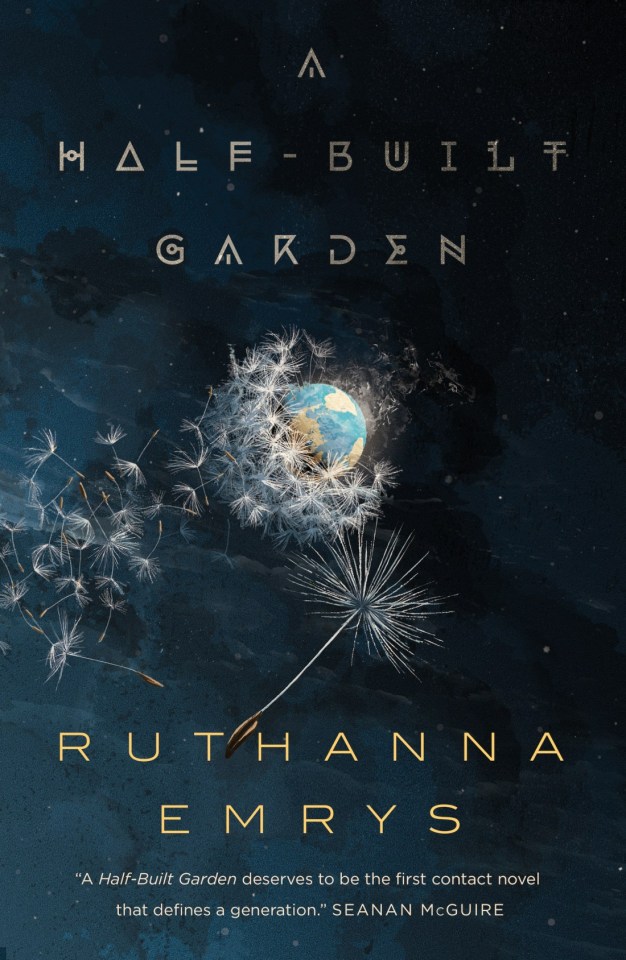
Okay, I have officially finally read a solarpunk thing I unreservedly enjoyed! Which means my opinion about all the other examples of the genre is no longer entirely just me being a hater.
...I joke (mostly), but I was sold this as basically ‘Psalm for the Wild Built but with actual conflict and an attempt to seriously think through its ideas”, and it absolutely lived up to that! Plus it’s a fun read with a few actually meaty characters, too. I mean, I do have complaints. Which I will go on about below. At length. But in the loving way, not the ‘actively resent having read this’ way. As proof of this, I offer the fact that this thing is well over two three four thousand words long, and for readability I’m breaking it into subheadings.
Summary
Anyway, the basics are that it’s the late 21st century, and the world’s been through a bit of a ringer in terms of climate change-induced disaster. At some point in the previous generation, a lot of political-economic power was seized by the Dandelion Networks, cyber-eco-anarchist collectives organized around the watersheds of major river networks, and dedicated to trying to unfuck the planet some. The actual plot revolves around First Contact, as an alien ship lands in the Chesapeake, offering evacuation and relocation to what they fully expect to be the desperate and grateful inhabitants of a dying planet. This leads to some awkwardness, given the Networks civilizational commitment to the mission of restoring the earth and lack of interest in eventually pulling it apart to make a dyson sphere, and the paternalistic (well, maternalistic) condescension of a decent chunk of the aliens about whether humans are competent to make that choice. Made even more tense because representatives of the vestigial United States and the much-reduced-but-still-important former globe-spanning megacorporations are much more enthusiastic about what the aliens have to offer.
So yeah, book full of cultural confusion, high stakes diplomacy, intrigue and ideology. I adored it.
General Discussion
The aliens were fun, in that they were absolutely and entirely nonhumanoid – two species, and neither of them mammalian or bipedal, and one of them not even having anything we’d really recognize as a face. It made the descriptions of conversations and physical interactions pretty funny to visualize at points, honestly; though it did also take me something like a hundred pages to get a real proper image of what both of the species in question actually looked like.
It was kind of interesting how so much effort was spent on making the alien’s appearance so, well, alien, but everything else worked on maximally convenient space opera rules? They can breathe the same air as humans with only minimal discomfort (and vice versa), and even enjoy each other’s food. Plus the story starts with the aliens having already created translation software that does its job perfectly with zero meaningful confusion or plot-relavent loss of meaning. Which all makes sense in terms of making the plot works, but still – no matter how important sharing food is as a thematic expression of shared intimacy and cultural exchange, still wounds my suspension of disbelief in this First Contact story when the 2 meter furry tree-spider can even digest human cuisine, let alone enjoy it.
The alien’s culture was both fascinating and kind of frustrating – I did love how the whole common sense of ‘of course a species will advance enough to leave their homeworld behind, or else die on it’ was so bone deep that most of them kind of floundered trying to actually try and convince someone who didn’t already agree with them. And likewise our protagonist and her compatriots were basically totally unable to make a convincing argument that didn’t take the value of Earth and a natural ecosystem as a given. That felt very true to life.
But frustrating because, like – the aliens have a sort of matriarchal social organization where nursing mothers (especially/specifically of one of the two species?) are taken as the natural authority figures in the extended cross-species households that seem to be the atomic units of economic production and political participation. But there’s a massive amount of gestured at nuances and references to wider institutions that are just never followed up on, which I’d normally consider just generally good worldbuilding except for that the fact that writing the Xenology 101 handbook should literally be the main character’s job here. Third act of the book, and she’s still never gotten around to asking for the precise mechanics of how authority is divided among the crew of the interstellar spaceship/first contact team/extended family she’s been dealing with!
The Dandelion Networks have to be by far the most thought out ‘solarpunk’ society I’ve ever really seen in a story, though that’s admittedly an incredibly low bar. I’ve still got some qualms and quibbles and bits that annoyed me about the portrayal, but insofar as it’s kind of unfair to expect every sci fi book to come free with an extra utopian manifesto, they did pass the sniff test as seeming, well, real? If not exactly as a socio-political/economic structure, then at least as a culture and civilization with its own traditions and minor hangups and celebrations and day-to-day routines. I also very much do appreciate the fact that even if they’re clearly portrayed as much, much better than the alternatives, they’re not an outright utopia.
The fact that, legally speaking, the United States government never gave up any territory or jurisdiction, it just chose of its own accord to merge and massively expand several national parks and subcontract their administration to these revolutionary anarchist networks with absolutely zero coercion involved nosiree, was also great. Or made me laugh, anyway.
The vestigial USA – here also our only representative of the entire class of still-extant nation states – gets comparatively little attention compared to the other players involved. On the one hand that’s kind of a shame because it’s legitimately unclear the degree to its the government and not the watershed networks putting on delusions on grandeur (which, to be clear, I kind of loved). And I did adore the fact that NASA...well, it didn’t actually do a coup, but just selectively read the legislation defining its responsibilities to just jump in and start handling everything about First Contact negotiations without really bothering to wait for permission first. But on the other hand they do very much seem the most normal – which is to say archaic, from the rest of the setting’s perspective, with Congress and the federal bureaucracy being characterized as ineffectual deadlocked quagmires where ideas go to die. Also the only people for whom monogamous long-term relationships or ‘most people being cis’ seems to be at all the norm, which I think makes them the closest thing the book has to on-screen social conservatives.
The Corps – the remnants of the formerly globe-spanning and world-burning megacorporations, now in the main restricted to the artificial island city-states they fled to when the world really started going to shit and the revolutions started – are the actual main ideological foils to the Dandelion Networks presented through by the book. And – look, I’ll be honest, the culture and politics feels like a natural (if incredibly optimistic) outgrowth of certain trends in modern American culture. The Corpos feel like an alien civilization invented whole cloth for a space opera because it seemed interesting and fun. Which, to be clear, they absolutely are – but, like, this book theoretically takes place sixty years in the future. ‘Specifically the corporate oligarchs and their most loyal guards, technicians and toadies have in one post-revolutionary-exile generation developed a stable entirely presentation based normatively genderfluid 7-gender system” seems like, how to put this, a bit of a stretch?
Still, they’re definitely fun, and I do really appreciate that Emrys gave them a real ideology and mythology instead of just making them self-consciously evil (a carefully nurtured bitterness that the Watershed Networks and their carbon budgets and sustainability mandates essentially stole the future from them, combined with a real belief in meritocracy and just deserts). Though, like, even moreso than the USA, I’m legitimately not sure the degree to which Judy and the other Watersheders common sense about them being slowly decaying relics losing people with every year is supposed to be taken as correct? Because, like, city-states in the middle of the ocean capable of sustaining themselves in the style we’ve seen implies either vast hinterlands or sufficient productivity to import all the raw materials they need from abroad in exchange for finished goods or access to truly immense amounts of energy or some combination of all three, and none of those really scream ‘archaic relic’. All to say that I might have come out viewing the Watershed Networks as more full of triumphalism and groupthink than was intended – though honestly if so, I like them better that way. It’s an entirely natural flaw for their system to create, honestly. Look at reddit.
Speaking of flaws the protagonist’s society had – I found it immensely charming how Judy was just, so utterly and completely terrible at being a spy? On a cinemasins level you do have to wonder how the corps weren’t already ruling the world again if the Network’s best and brightest are all this easy to entrap and blackmail, but on a thematic level it does work as emphasizing how the networks, well, work through the wisdom of crowds and constructive debate, and trying to fly off on your own in little self-appointed conspiracies rarely ends well for anyone involved.
The Eponymous Garden
The question of what humanity is for – whether we have a destiny to reach for the stars, or if there’s something vital about the planet earth (about a living ecology, about one’s ancestral home writ large, about having a place in a natural order) – is, if not the book’s overriding theme, certainly the one it spends the most time consciously thinking about. (I mean, it’s literally the title). And the book really does try to make the conflict genuinely difficult and nuanced; our heroine is a voracious and vitriolic partisan of the Earth-is-special side of things, but the text pretty clearly doesn’t agree with her about that as much as it does some of her other positions.
The entire debate was honestly fairly reminiscent of some debates you see floating around Tumblr every so often. The Ringers have created a curated toy ecology to keep their habitats pleasant and livable, and that done see their abandoned homeworlds as containing nothing really worth mourning in fact they’ve literally pulled them apart as raw materials for their orbital habitats and megaengineering projects. Judy views the idea of humanity doing the same – even to Mercury or Mars, let alone Earth - as both horrifying and, well, not quite profane (her Judaism is definitely an important part of her character, but she never directly uses theology as explanation for her politics) but certainly ontologically, fundamentally wrong.
The Ringer’s teleology is pretty simple – technological advancement gives a species the ability to care for itself and free itself from the various tyrannies of nature, at the cost of expending scarce resources on a dozen different fronts and eventually leaving their planet uninhabitable. The only question is whether they’ll escape the world or die with it. Humanity is the first species they’ve encountered that hadn’t already gone with option B. More fundamentally – and here’s where the human corporates jump enthusiastically on board – leaving the planet behind means refusing the limits of ecology, and to an extent of scarcity. Populations in the trillions, a dyson swarm, mega-engineering projects with millennia-long schedules. Not to mention the whole romance of endless new horizons, novelty and exploration and a consciously arranged world.
Which is all, of course, exactly the dream the Watershed Networks spent their revolution fighting against. The Chesapeake Network is from every indication a very nice place to live, but it’s also very much defined by the necessary scarcity that comes with trying to live sustainably, and in harmony with the horrible damaged biome you’re also in the middle of a massive, civilizational infrastructure project to restore. International travel and imported goods strictly limited by carbon budget, international communication strictly limited by the need to limit potential infection vectors for malware, apparent societally normative coparenting and/or polyamory as a labour-saving thing – abstracted away from the specifics of space travel, it’s basically the perennial degrowth argument on here.
Though as far as space colonization qua space colonization goes, it’s kind of fascinating to compare Garden’s take on it to how it’s presented in Terra Ignota? Which is to say, Ada Palmer presents spreading through space as a heroic endeavour – something worth doing for its own sake, because it is in some sense humanity’s purpose, but a great and arduous project that will strain every available resource and lead to a lot of impoverishment and scarcity for the doing. Which comes amusingly close to mirroring exactly how Emrys characterizes staying on Earth.
A few trillion aliens willing to handle the capital expenditure for relocation and infrastructure do change the math a bit, I suppose.
...and It’s Gardeners
Which is to say, the Watershed Networks. As I said above, they’re clearly intended to be something of a flawed or incomplete utopia, generally heroic and praiseworthy but with major blindspots and issues. I’ve got qualms about what those issues are and their severity, but I’ll save that for the petty bitching section below. Besides, given that they’re decently thought out and detailed, it’s honestly more interesting to examine them as an incomplete utopia and the principles underlying them.
So, the networks are a high tech cybernetically-organized federation of green anarchists, organized around the watershed of a major river and with the civilizational mission to protect and restore that watershed’s ecology; coordination between watershed’s seems to be limited to small scale trade or else matters which affect multiple watersheds.
‘High tech’ isn’t a joke, either – augmented reality interfaces seem totally normative and almost necessary given their government, not to mention the ten thousand different monitoring systems used to keep track of the status of each part of the whole ‘unfuck the ecosystem’ project. Robotic drones and prosthetic limbs with full haptic feedback were both totally unremarkable – anprims they really aren’t.
They govern themselves by – okay, I said ‘by reddit’ above and that’s mostly a joke. But like, only mostly. By infinetly flowering nested chats and discussion fora dedicated to any topic of public interest, to which any citizen can contribute to the debate or propose action items through that AR interface, with ones weight on any given issue being determined by the algorithm’s approximation of the community’s trust in your wisdom and expertise on topics like what’s being discussed (‘Utopia’ means taking as read that this works).
Beyond just weighting and being an automod, the Dandelion algorithm also encode the Network’s values, amplifying the voices that live up to them and de-emphasizing those that don’t. And most of all, they act as phantom votes representing the Watershed’s nonhuman constituents, boosting suggestions and action items based on the interests of the wider ecology, wildlife, etc.(again, accepting that this works is basically the price of admission).
So far so Eclipse Phase-but-green. But there’s a couple specifically interesting things about the whole setup that I do want to focus on.
First, the whole theory of politics and decision making underlying the Networks (and the book) is something like a wholehearted belief in the wisdom of crowds – that everyone involved cooperating and trying to come up with a crowdsourced solution through moderated debate will lead to better ideas and better solutions than a small group of experts or conspirators or operatives. And the book does actually commit to this – basically every time anyone from the Watershed goes off on their own and assumes they need to make an important decision on their own/in a small group it blows up right in their face.
You know the one line from Men In Black? ‘A person is smart. People are dumb, panicky dangerous animals”? The book basically commits to the exact opposite of that.
More minor but it did just strike me as interesting – Judy (and, I think, other networers) never refer to each other by their job title, and in fact object to it. Judy is not an environment engineer, she just does some environmental engineering work, as well as jam making, gardening, child-raising, and a dozen other things. On the one hand, almost everything about the life of someone in the networks pretty much has to be pretty legible – basically everything seems to be public, the community is tight knit and expected to host each other as needed, everyone wears pronoun pins, the entire labour-allocation and weighting system must require immense amounts of information on each individual participant – but on the other, none of them are ever reducable down to their jobs or roles. Reminds me of that one Heinlein quote, honestly. ‘Specialization is for insects’ and all that.
Cultural Exchange
I don’t really have much to say here, but it’s a prominent enough theme I’d feel remiss if I didn’t mention it, so. Aside from the high politics and idealogue-ing, Garden is really concerned with what the worm’s-eye-view of cultural exchange following First Contact might look like, and just demonstrating different ways that culture can be shared.
Which is why I really can’t be too annoyed at the implications of both species of Ringers and humans being able to both consume and appreciate each others cuisine – Emrys has clearly some of those ultra-viral tumblr posts about how sacred sharing food is, and the sharing of meals and ways of eating is a pretty key way the book both characterizes cultures (e.g. corporate culture ‘feast food’ being a way of showing off artifice and competing to make novel designs its impossible to guess the taste of is just one more way they’re shown to be obsessed with appearances and artificiality and general decadence) and demonstrates trust or sharing between them.
Beyond meals (or as part of them), there’s also religion and ritual used for much the same purpose. And sex, of course – it takes like a week and a half for Judy to go from being introduced to intelligent alien life to asking one of them if he wants to try a threesome – and, probably more importantly, family and children. There’s a whole gimmick about how Ringer matriarchs always bring their children with them to negotiations as (among other things, roughly) a show of good faith, and expect humans to do the same. The book seems slightly unsure of itself about how much it thinks this is a good idea (also about Ringer family structure/matriarchal authority more broadly, to a less degree), but the different species of children bonding and playing together while their parents is pretty clearly shown as an unambiguous good.
And finally-
Complaining
Because if I’m going to think about literally any piece of media for this long, I end up with annoyances I need to vent about. So! In no particular order, narrative issues, worldbuilding issues, and random nitpicking.
The whole final arc of the plot – basically everything after they leave Earth – felt incredibly rushed for how much it was trying to introduce. Now, getting a little glimpse of how the Ringers lived and worked and bickered was absolutely necessary, but there just was not enough wordcount devoted to it to really be anything more than a glimpse. The politiking just felt broad and clumsy, and the way Ringer politics worked a bit half-baked. Beyond which, there’s all these hints of interesting power dynamics and inequalities among the Ringers but then the book never really expands on or does anything with them (beyond, like, spending half a page introducing the concept of pronouns pins and...okay ‘being trans’ is wrong because one of the species’ seems to be entirely genderfluid as a rule, but determining ones own gender? To them. And then never following up on that either!).
But beyond all that, there’s just the more significant issue is just that the entire climactic confrontation is resolved by...a tertiary character whose spoken on a single-digit number of pages being overcome by conscience and admitting the whole corporate conspiracy and sabotage which is responsible for every wrong thing the Networks have done so far. Not even under prodding or courting from the protagonists, either – if that one fashion designer hadn’t been a slightly more important secondary character’s sibling and just been left with the luggage, the Networks would have been fucked. Instead, the one bit of testimony sways the assembled aliens and saves the day. Just felt too neat and easy and unearned.
More annoying still is the specifics of how the Networks failings are portrayed. Now, as I said above, they aren’t portrayed as perfect, but the book does a thing I really, truly despise in fictional worldbuilding (in large part because of how common it is in nonfiction too) where essentially every thing the networkers get wrong and every stupid mistake they make is the result of nefarious Outside Agitators corrupting and sabotaging the system – like the evil corporate spies and hackers are literally responsible for everything wrong with Networker politics, and if they hadn’t sabotaged the Dandelion Network there’s no way people would ever get anything wrong. Puts a bad taste in my mouth, like the people who never shut up about any stupid mistake done by ‘their’ side being a false flag.
Beyond that, like – okay, so if I’m going to take the book on its own terms I just have to accept that this anarchist network is capable of coordinating labour on a vast and detailed enough scale to handle ecological restoration efforts that are halfway to terraforming at this point, and capable of mustering and deploying coercive force with enough strength to actually cow and keep in line numerous polities with more centralized social organizations that historically really do win at that sort of thing. Sure, okay, not exactly fair to ask Emrys to Solve Anarchism, even if I’d have really loved some acknowledgement of where exactly all the metal and rare earths for all these robots and prosthetic and IT infrastructure is coming from (sure, carbon budgets, but like – where’s the Chesepeak’s sacrifice zone that got designated to hold all the mining and heavy industry?).
More importantly, though, I can still wish the book had dug into the guts of the system and, like, pproblematized it a bit? The fact that public debate and the weighting of people’s votes is controlled by these opaque algorithms seems like it requires investing your programmers (not even just programmers, specifically the ones working to maintain this incredibly intricate system) incredible amounts of trust and power they could abuse without people really noticing! Or take the fact that political debate is structured and influenced by the consciously determined ethical and political principles built into the system; okay, so the system’s a full generation old now, yes? Is there no controversy, no generational divide, no resentment among the younger cohort about their speech and opinions being weighed according to their parents ideals? The whole setup seems like it’s built to exemplify that one Marx quote, traditions of the dead weighing like a nightmare on the brains of the living &c. There are multi generational households, and the family is clearly an important socio-economic unit, with some being much more prestigious and influential than others, so how does inheritance work in this anarchist utopia? There’s some interesting drama to dig into, here!
Beyond that, everyone in the Networks is just too...nice? Like, the final epilogue involves the corporae programmer who literally created the malware that almost destroyed everything – and did get people killed – defecting. And absolutely no one holds any sort of grudge? She’s just given a house and told to start helping when she can? Which I found pretty hard to swallow on like three or four different levels (‘do they just keep spare houses lying around to give away whenever someone needs’, not least. If you’re deeply concerned with living sustainably and in harmony with nature, immigration and land/resource use are actually major issues that are going to run into a lot of resource constraints, especially if you’re trying to rewild or diversify what had been industrial farmland).
And significantly less important but – the fact that everyone who appeared on screen (anarchists, corporate executives, federal bureaucrats, random Network programmers and partygoers and corpro interns and-) is basically a queer feminist with only a vague historical understanding of being oppressed on the basis of gender or sexuality (and the only exception is one of Judy’s coparents being raised in an oppressive ‘Purist’ cult he eventually escaped from) is probably necessary to keep all sides at least potentially sympathetic to the expected audience, but it did hurt the verisimilitude of the worldbuilding some, for me. Though hey, maybe that’s just me being unduly pessimistic, fuck knows there’s been plenty of progress on those fronts between 1960 and now, so hey!
Anyway yes, good read!
#book review#a half built garden#ruthanna emrys#sff#solarpunk#sorry this is so long#and that I didn't bother really editing
69 notes
·
View notes
Text
Top 7 Reads of 2023
It's the time of year for lists, so inspired by @missgeevious, here are my favourite books from the past year, in no particular order.
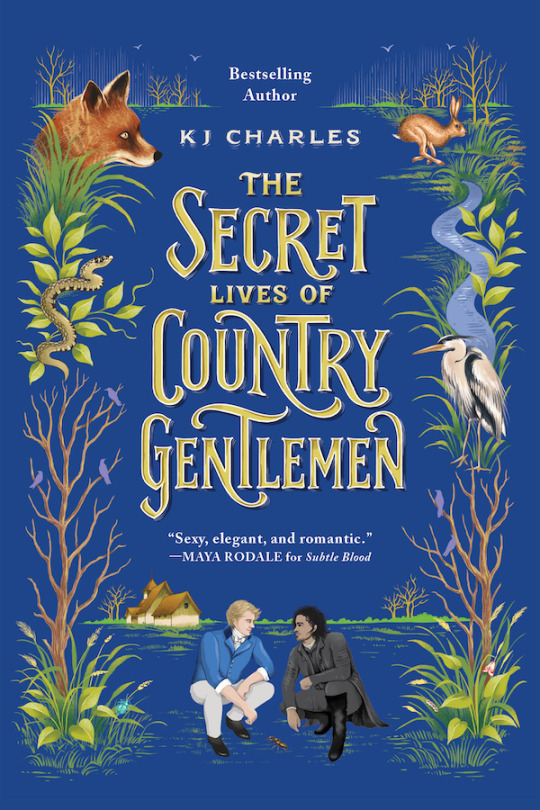
The Secret Lives of Country Gentlemen by KJ Charles. Imagine Our Flag Means Death, but instead of becoming a pirate, the main character inherits a country estate and has a fascination with entymology. There's smuggling and murder and other nefarious deeds, but they fade into the background behind the very soft romance.
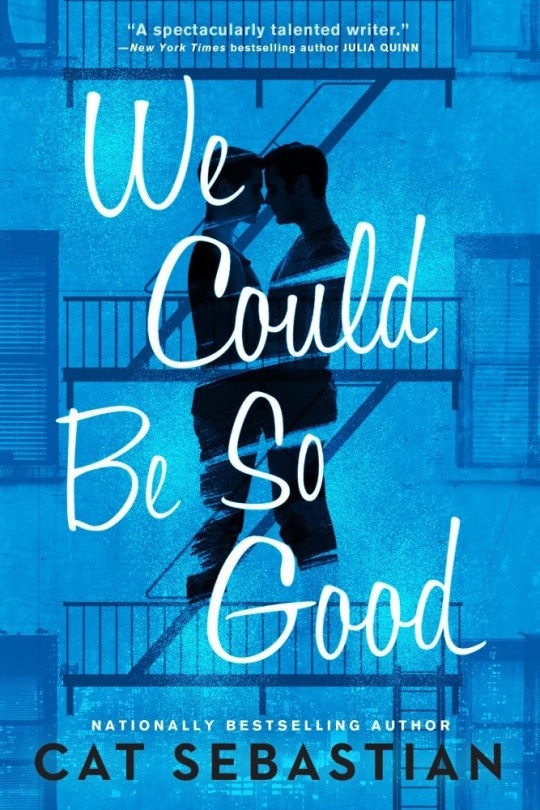
Cat Sebastian is one of my always-read authors and I love her new set of stories that are set in the more recent past of the 1960s and 70s. We Could Be So Good is a wonderful mix of character and place and setting with two main characters working through things to decide if they can be together.
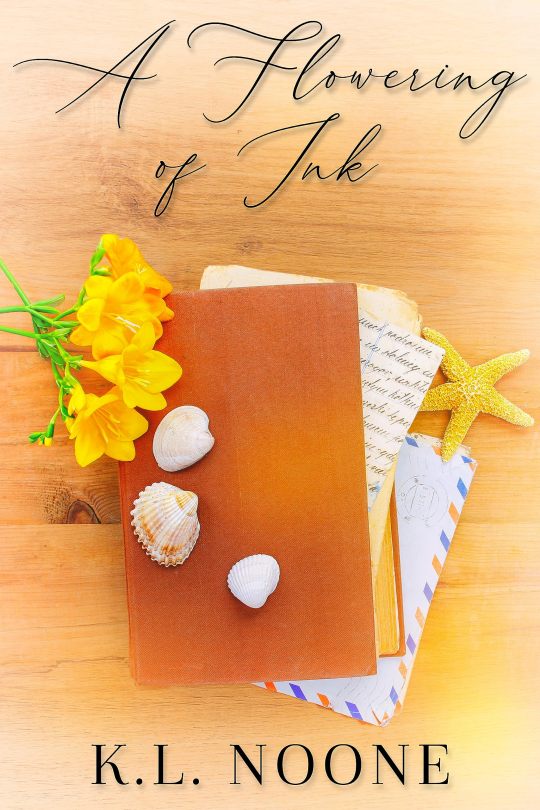
This novella is absolutely perfect. A Flowering of Ink takes the classic misdirected mail trope and creates something soft and wonderful. The two main characters are an architect/artist and a botanist, which is truly the path to my heart.

I put off reading One Last Stop for so long and I wish I'd read it sooner. It has everything I like - time travel, magic, star-crossed lovers. The twisty connections between the two time periods were really well done and tied the entire story together.
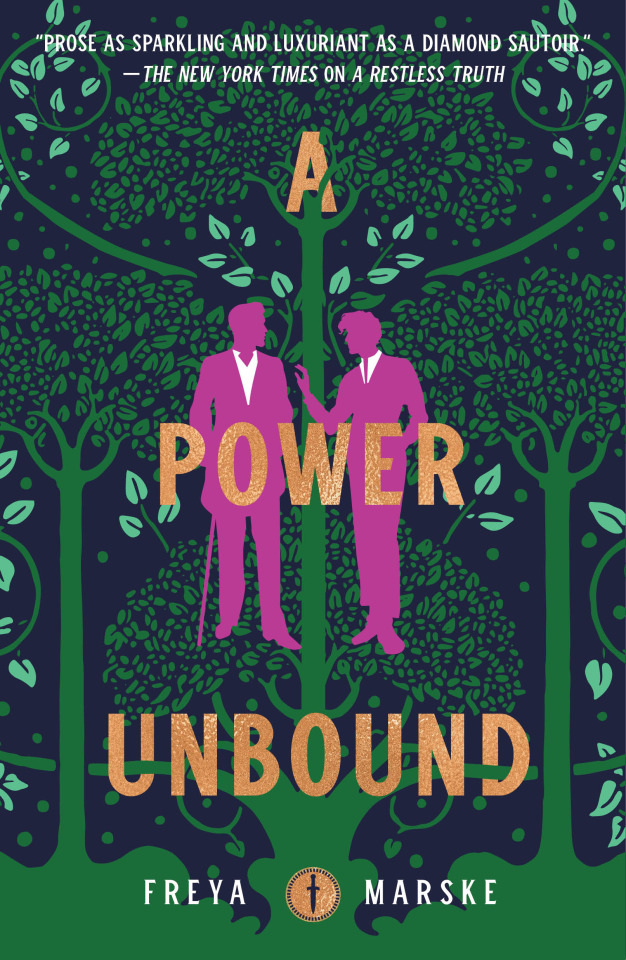
The final book in the Last Binding series, A Power Unbound delivered the perfect conclusion to this series. I really liked how each of the three books focused on a different pairing but that their stories were part of a larger plot.
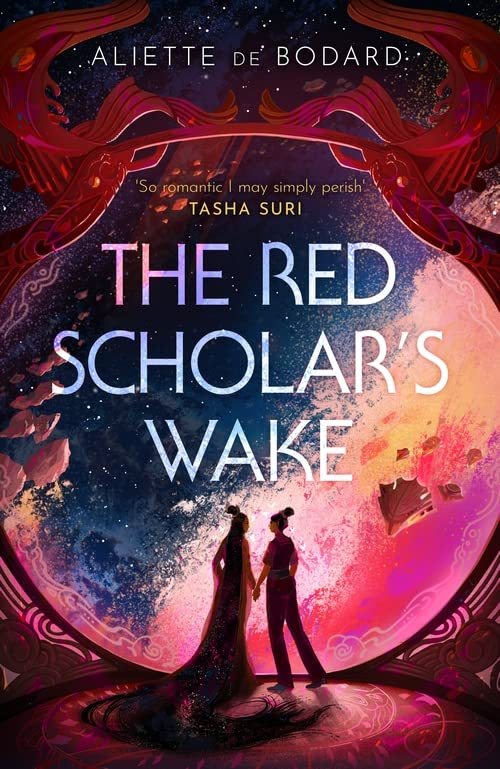
I've followed this author on Twitter for years, but The Red Scholar's Wake is the first of her books that I've read and it's wonderful. The scifi universe is complex, but not so vast that it overwhelms the story. The arranged marriage plot starts out with a very unequal balance of power that eventually evens out through the story.
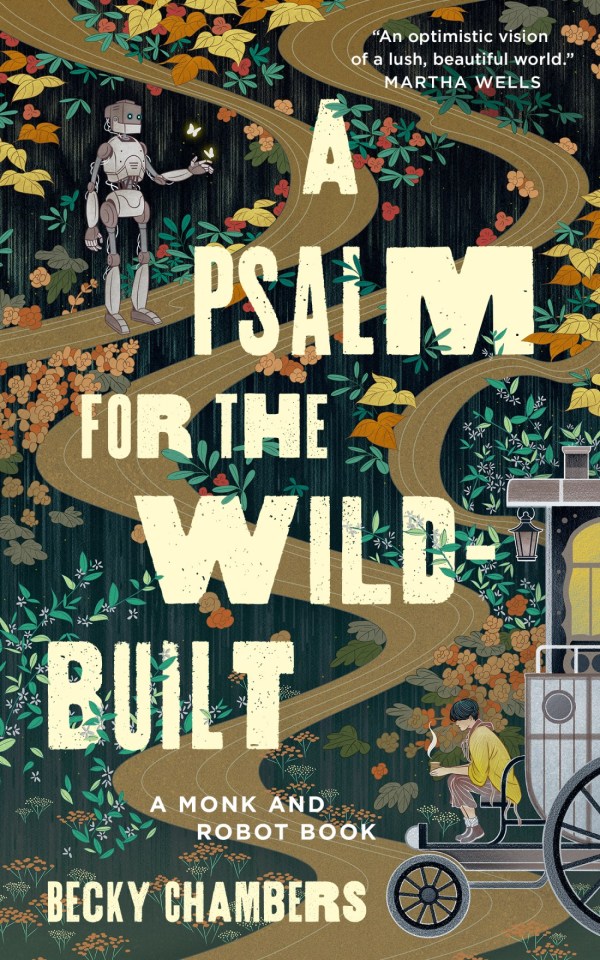
A Psalm for the Wild Built is such a difficult book to describe - on the surface it's about two new friends who take a journey together, but it's about so much more - about hope for the world, about figuring out who you are, about finding yourself. I can't wait for the sequel.
What did you read this year? Tagging @weathereyehorizon @blackandwhiteandrose @likerealpeopledo-on-ao3 @rmd-writes @stereopticons @obsessedwithdavrick @chelle-68 and anyone else who wants to share.
16 notes
·
View notes
Note
🥺
🥺 what’s a truly underrated book/series you recommend and wish the whole world would read?
All of these books are ones that either never won awards, or are not well known -- as in if I mention them, people give me blank looks or show no recognition of the series or author.
A Psalm for the Wild Built by Becky Chambers
Young Wizards Series by Diane Duane
The Circle of Magic, The Circle Opens, and Will of Empress by Tamora Pierce
Area X: The Southern Reach Trilogy: Annihilation; Authority; Acceptance by Jeff VanderMeer
The Species Imperative Trilogy by Julie Czerneda
Lagoon by Nnedi Okorafor
Moonshot: The Indigenous Comics Collection edited by Hope Nicholson
A Psalm for the Wild Built is a novella and about a nonbinary monk who travels the countryside and serves tea to people, while listening to their troubles. Except they decide they need to go into the wilds, but during their journey, they encounter the first robot humans have seen in over two hundred years. Their friendship is adorable. It's a solarpunk world, and it's message of hope is everything. I adored it, and I wished I lived in this world honestly.
____
The Young Wizards series started in the 90s actually. I was a kid when I read the first book: So You Want To Be A Wizard. I grew up reading these books, and so I never got into Harry Potter. Mostly because when I tried Harry Potter, it felt like a poor shadow of the Young Wizards series. So I abandoned Harry Potter to continue to read Young Wizards.
Honestly, I adored Nita and Kit and their fantastical adventures. @dianeduane is a master at twists and turns, and the plots of Young Wizards goes from localized problems to multi-universe problems the young wizards must rush to solve. I can't recommend it enough.
Seriously, I want more people reading Young Wizards so I can talk to more folks about it. So that we can have some fanfiction for it, so that we can have more fanart. It deserves so much more attention, plus the author is super awesome and supportive for LGBTQIA folks! I'll sound the drum on this series forever. lol
____
Another series that I grew up with that I wish more people knew about is The Circle of Magic, The Circle Opens, and Will of Empress by Tamora Pierce. Sandry, Tris, Daja, and Briar were my found family, comfort characters, and their teachers were so gay (the two lesbian teachers were together actually). The themes explored were complex and fascinating. Pierce is more known for her Alanna series, which I think isn't as good as her Circle of Magic series honestly. This is my comfort series that I've read a bazillion times.
____
Area X: The Southern Reach Trilogy: Annihilation; Authority; Acceptance by Jeff VanderMeer is very hard to describe. I know a movie was made of the first book -- Annihilation, but the movie really doesn't capture the true weirdness of this series. Nor the rather hopeful if bizarre ending. I keep going back to re-read this series because it's prose, its worldbuilding, how the land itself becomes a character is so utterly fascinating. I want more people to read the books so I can talk to them about it!!
____
The Species Imperative Trilogy by Julie Czerneda is one of my favorite trilogies of all time. It's not well known at all, which makes me sad. Julie Czerneda is a master at crafting alien species. The story is about a salmon researcher that ends up on an investigation about an alien species that may or may not be eating entire planets of aliens -- it's a conspiracy that spans the galaxy. I couldn't put it down, and I keep going back to it because its themes are fascinating.
___
Nnedi Okorafor is more well known for her Akata Witch series (I highly recommend) or her Binti series (also highly recommend). However, her Lagoon really by far one of her best I think. It's the story of first contact with aliens, but it's also an exploration of identity, liberation, community, and how we react to change and difference. It has a very diverse cast including well-written trans characters, and I wish more folks read it (beyond scholars) so I can chat about it!
___
Moonshot: The Indigenous Comics Collection edited by Hope Nicholson is a kickstarter I did randomly, and I'm so glad I did. I have three in this collection, and it's comics by Native American artists. They are all fantastic and I don't even know where to begin. There's just so many good stories in it, and I wish more people knew of this collection and would read it. It explores identity, intergenerational trauma, healing, liberation, and community. One of the best comic anthologies I've ever read.
____
I'll stop there. Mostly because I'm getting tired and I know the question only asked for one. But I can't choose! These are all so good, and I highly recommend them all!
So thank you for asking. :)
#writing#books#diane duane#nnedi okorafor#jeff vandermeer#hope nicholson#tamora pierce#julie czerneda#science fiction books#fantasy books#book ask game
7 notes
·
View notes
Note
reading wrap up 2022 GO
ok so my goal this year was to read 100 books and then i went ahead and read 109. and if i read the locked tomb series three times through that's no one's business but mine <3
italics are queer, bold are amazing, bold italics are queer and amazing
jan:
middlesex - jeffrey eugenides
the mountains sing - nguyên phan qué mai
the vegetarian - han kang
the galaxy and the ground within - becky chambers
to be taught, if fortunate - becky chambers
when we were orphans - kazuo ishiguro
americanah - chimamanda ngozi adichie
h of h playbook - anne carson
klara and the sun - kazuo ishiguro
the space between worlds - micaiah johnson
feb:
normal people - sally rooney
circe - madeline miller
blood of elves - andrzej sapkowski
gideon the ninth - tamsyn muir
time of contempt - andrzej sapkowski
baptism of fire - andrzej sapkowski
march:
the tower of the swallow - andrzej sapkowski
lady of the lake - andrzej sapkowski
harrow the ninth - tamsyn muir
the last wish - andrzej sapkowski
we should all be feminists - chimamanda ngozi adichie
a memory called empire - arkady martine
burnt sugar - avni doshi
a psalm for the wild built - becky chambers
april:
the alchemist - paul coelho
sword of destiny - andrzej sapkowski
oranges are not the only fruit - jeanette winterson
the colour purple - alice walker
the midnight library - matt haig
where the crawdads sing - delia owens
10 minutes 38 seconds in this strange world - elif shafak
the discomfort of evening - marieke lucas rijneveld
crying in h mart - michelle zauner
my year of rest and relaxation - ottessa moshfegh
the shadow king - maaza mengiste
the virgin suicides - jeffrey eugenides
sapiens - yuval noah harari
the manningtree witches - a. k. blakemore
may:
parable of the sower - octavia butler
hot milk - deborah levy
an unkindness of ghosts - rivers solomon
the water dancer - ta-nehisi coates
pure colour - sheila heti
this is how you lose the time war - amal el-mohtar & max gladstone
five little indians - michelle good
june:
indian horse - richard wagamese
ducks, newburyport - lucy ellmann
the vanishing half - brit bennett
medicine walk - richard wagamese
crier's war - nina varela
a quality of light - richard wagamese
after the quake - haruki murakami
death in her hands - ottessa moshfegh
the school for good mothers - jessamine chan
bluets - maggie nelson
of women and salt - gabriela garcia
lapvona - ottessa moshfegh
mcglue - ottessa moshfegh
songbirds - christy lefteri
july:
to paradise - hanya yanagihara
sankofa - chibundu onuzo
the argonauts - maggie nelson
jane: a murder - maggie nelson
eileen - ottessa moshfegh
iron widow - xiran jay zhao
homesick for another world - ottessa moshfegh
a desolation called peace - arkady martine
the art of cruelty: a reckoning - maggie nelson
the witch's heart - genevieve gornichec
dune - frank herbert
aug:
never let me go - kazuo ishiguro
the island of missing trees - elif shafak
the marriage plot - jeffrey eugenides
almond - won-pyung sohn
all over creation - ruth ozeki
the water cure - sophie mackintosh
drive your plow over the bones of the dead - olga tokarczuk
sep:
the remains of the day - kazuo ishiguro
the blind assassin - margaret atwood
go set a watchman - harper lee
a pale view of hills - kazuo ishiguro
seven fallen feathers - tanya talaga
an artist of the floating world - kazuo ishiguro
the atlas six - olivie blake
the inconvenient indian - thomas king
a tale for the time being - ruth ozeki
ru - kim thuy
split tooth - tanya tagaq
wintering - katherine may
nomad century - gaia vince
dune messiah - frank herbert
the unbearable lightness of being - milan kundera
oct:
nona the ninth - tamsyn muir
indians on vacation - thomas king
severance - ling ma
nocturnes - kazuo ishiguro
nona the ninth - tamsyn muir
a prayer for the crown-shy - becky chambers
nov:
gideon the ninth - tamsyn muir
harrow the ninth - tamsyn muir
nona the ninth - tamsyn muir
embers - richard wagamese
dec:
starlight - richard wagamese
the buried giant - kazuo ishiguro
autobiography of red - anne carson
notes on grief - chimamanda ngozi adichie
cloud cuckoo land - anthony doerr
on fire: the burning case for a green new deal - naomi klein
sufferance - thomas king
#thanks for asking bro!!#read some bangers this year that's for sure#read some stinkers too but hey#gotta cast your net wide right#hope you had a great reading year too!!#yes tamsyn muir owned my entire ass this year and what about it#if anyone has great recs that align with the greats i've read this year i am all ears!!!#happy holidays my bro#book recs
103 notes
·
View notes
Text
Book recs: robots and artificial intelligences
A note: I'm differentiating here between artificial intelligence and transhumanism (such as uploaded consciousnesses and cyborgs), which I intend to make a separate rec post for at a later date.
(Titles marked with * are my personal favorites)
Other book rec posts:
Really cool fantasy worldbuilding, really cool sci-fi worldbuilding, dark sapphic romances, mermaid books, vampire books, portal fantasies

Continue beneath the cut for details on the books!

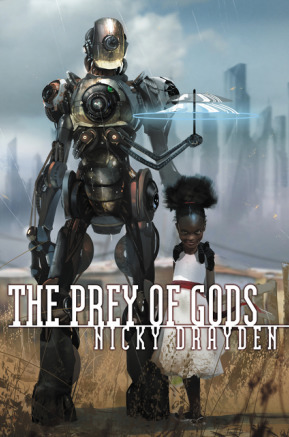
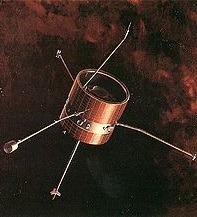
The Outside by Ada Hoffman*
AKA the book the put me in an existenial crisis. Souls are real, and they are used to feed AI gods in this lovecraftian inspired scifi where reality is warped and artifical gods stand against real, unfathomable ones. Autistic scientist Yasira is accused of heresy and, to save her eternal soul, is recruited by post-human cybernetic 'angels’ to help hunt down her own former mentor, who is threatening to tear reality itself apart.
The Prey of Gods by Nicky Drayden
South African-set scifi featuring gods ancient and new, robots finding sentience, dik-diks, and a gay teen with mind control abilities. An ancient goddess seeks to return to her true power no matter how many humans she has to sacrifice to get there. A little bit all over the place but very creative and fresh.
17776: What Football Will Look Like in the Future by Jon Bois*
A multi-media web novel available to read freely online (which you should do!!). I don't want to give too much away as the initial punch of finding things out is part of the journey, but it's both hilarious and profound as it questions the meaning of humanity and life.
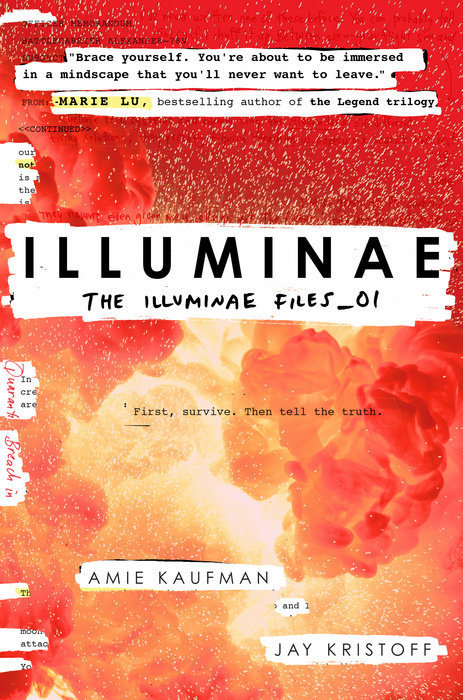


Illuminae (Illuminae Files) by Amie Kaufman & Jay Kristoff*
Young adult told through the medium of transcripts, text messages and the like (this is one of few books where I highly recommend reading a physical copy over a digital as the visual aspect is much more enjoyable like that). After their colony is attacked, the surviving inhabitants flee on space ships, attempting to avoid the pursuing killers while also dealing with a deadly madening plague on board and a ruthless ship AI seemingly losing its mind.
A Closed and Common Orbit (Wayfarers series) by Becky Chambers*
Technically part two of a series, but stands well on its own as the installments are only losely connected (though I recommend reading the first book as well, it's very good). A former ship's AI recently moved into an illegal android body tries to make sense of life as she navigates her way through humans and aliens alike.
The Quiet at the End of the World by Lauren James*
Young adult. After the spread of a global virus causing infertility, teenagers Lowrie and Shen are now the youngest humans alive as the adults around them race to find a cure. As they investigate the ruins of the world, the two come across records from the past, of how grief stricken people turned to raising artificial children in apps and how these 'children' developed, and through these records the two learn of their history. Also has a bisexual main character!


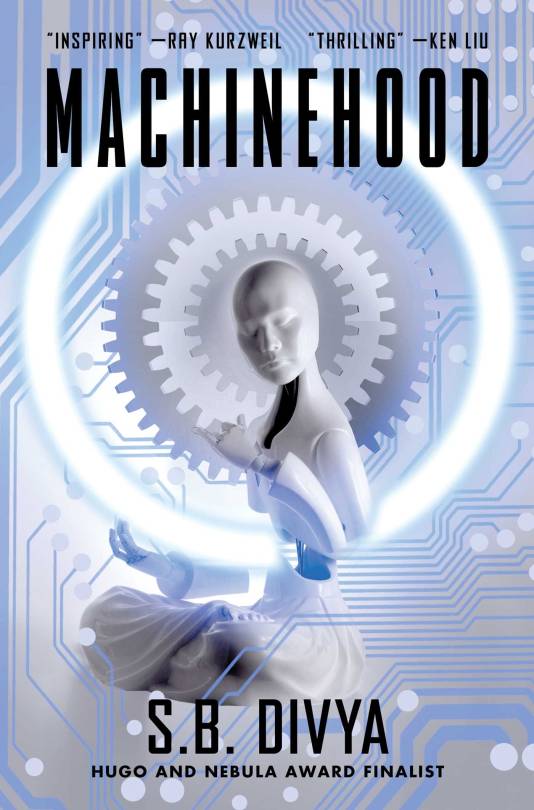
A Psalm for the Wild-Built (Monk and Robot series) by Becky Chambers
Novella. Long ago, robots, upon gaining sentience, simply laid down their work and walked into the wilderness. Long after, a tea monk looking for purpose follows after them into the wilds, where they come across one of the robots seeking its own sort of answers. While not plotless, this story focuses more on character and vibes over plot. Also has a nonbinary main character and features conversations on gender between human and robot.
All Systems Red (The Murderbot Diaries) by Martha Wells*
After having hacked its own governor module, SecUnit uses its small amount of new freedom to secretly download and watch as much media as it can between doing its job guarding humans. But when the scientists it’s been charged with keeping safe come under attack, it must make a choice about whether to continue keeping its freedom secret or risk it all to save them. The series features both novellas and full length novels, and balances humor with scathing critique of capitalism.
Machinehood by S.B. Divya
Prudent in the rise of AI and machine learning, Machinehood shows a near future in which humans struggle to find a place on the workforce as more and more jobs are given to AI. Status quo is shaken as a dangerous terrorist group calling itself The Machinehood starts committing attacks. A close look both at the rights of humans in a technologically changing world, and at the rights of AI as their intelligence edges ever closer to full sentience.

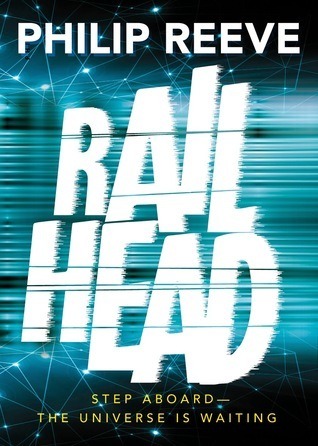
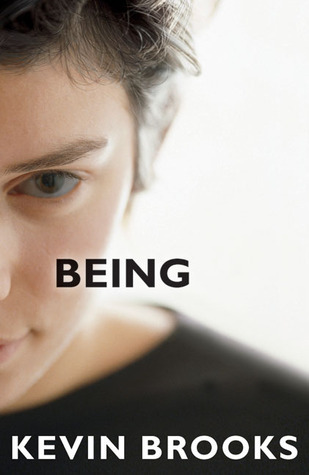
The Company of Death by Elisa Hansen*
A wild mix of genres, where a zombie apocalypse has struck and vampires gather up humans to keep their food source from going extinct, a robot travels across America with a young man she's tasked to keep safe, and former-vampire-hunter-recent-zombie Emily teams up with Death himself to stop the apocalypse. Features bi and ace characters! Bonus rec: the author also runs the youtube channel Maven of the Eventide, where she talks about various vampire media. Check it out!
Railhead by Philip Reeve
Young adult. In a future where humanity travel between the stars using not spaceships but a portal-connected system of sentient trains, a young thief and street urchin is hired to steal something off of the Emperor's train.
Being by Kevin Brooks*
Young adult. Cards on the table, I think I was about 14 when I last read this, but it made a strong enough impression that I still think of it as one of my favorite books. After having gone in for a routine exam, doctors make a stunning discovery about Robert Smith: he isn't human. Suddenly hunted, Robert goes on the run as he tries to cope with the fact of his own existence. While I love this book, it gives very few answers to its many mysteries, so don’t go in expecting full explanations.
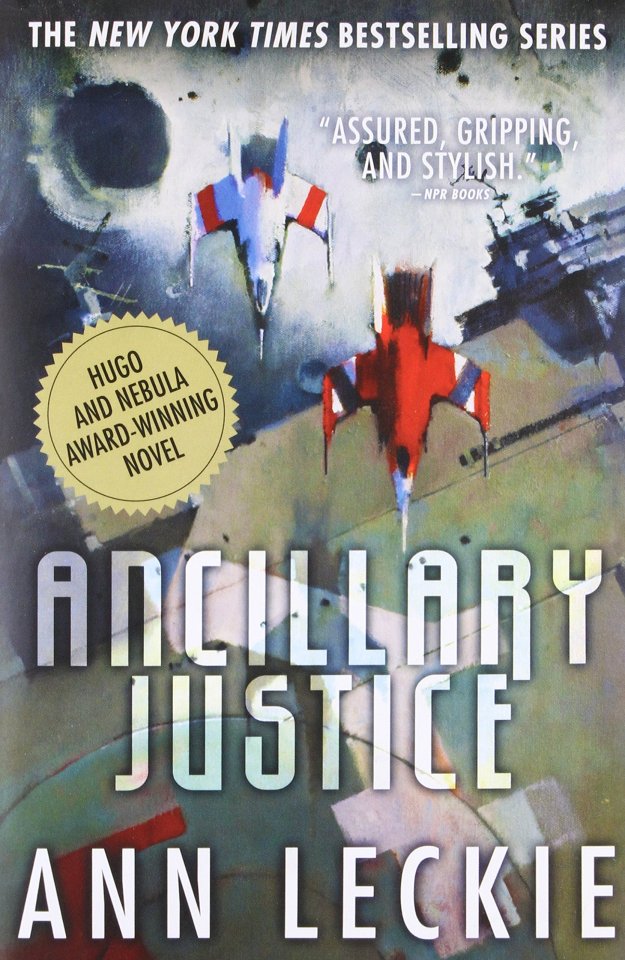
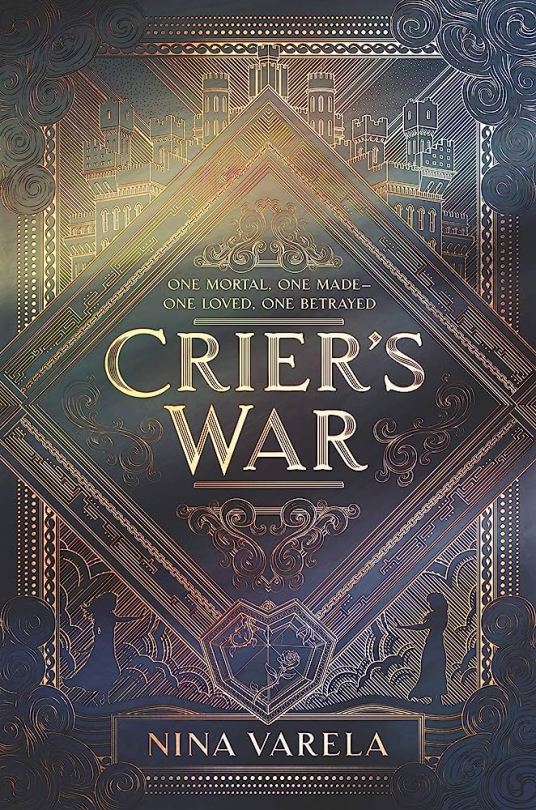

Ancillary Justice by Ann Leckie*
A space opera in which sentient spaceships can walk the ground in stolen human bodies, so called ancillaries. One of these ancillaries, the sole survivor after the complete destruction of her ship and crew, is one the hunt for revenge. This series also does very cool things with gender!
Crier's War by Nina Varela
Who says sci-fi has monopoly on robots? In sapphic YA fantasy Crier's War, artificially created automae have defeated and subjugated humans, who live as second class citizens. Young Ayla goes undercover as a servant, meaning to assassinate automae girl and Sovereign's daughter Crier. This would be easier if the two weren't quick to develop feelings for each other.
My Heart is Human by Reese Hogan
Nine years ago, all complex technology was made illegal. This complicates life for Joel, young transgender single father, as a bionic just uploaded itself into his brain without consent. Scared of losing his daughter, Joel tries to keep the bionic secret while using it to fix his life, but things quickly get more complicated as the bionic gains more and more control of his body. Makes a lot of cool paralells of bodily autonomy to Joel's experiences as a transman. Bonus rec: if you like the general concept of struggling for physical control over one's body with an AI, may I also suggest the (much grittier and gory) movie Upgrade.


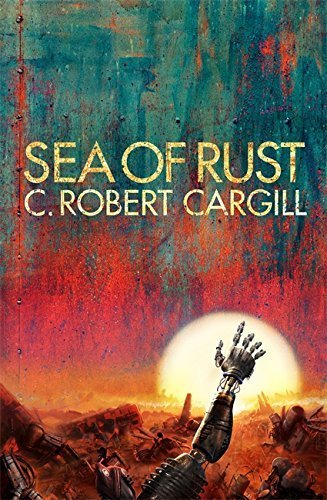
The Archive Undying (The Downworld Sequence) by Emma Mieko Candon
In a world where AI gods sometimes lose their minds and take entire populations down with them, Sunai was the only survivor when his god went down. In the 17 years since, he has wandered on his own, unable to either die or age, drowning his sorrows in drink and men. But his attempts to flee his past comes to a stop as he is forced back into the struggle between man and machine. Featuring some pretty wild world building and narrative techniques, this book will definitely confuse you, but it is worth the experience.
Activation Degradation by Marina J. Lostetter
Unit Four comes to life in the middle of a war. The mine it was created to care for is under attack, and as Unit Four is activated with the memories of its predecessors, it is thrown into the task of protecting it at any cost. When the battle leads to its capture, it is prepared to do anything to stop its captors, even as their very presence causes it to question all that it knows.
Sea of Rust by C. Robert Cargill*
Years after the death of the last human at the hands of a robot uprising, Brittle travels the desert searching for machines on the brink of breaking down whose parts she can scavenge. The world is quickly falling apart as a war between OWIs - One World Intelligences - struggle to absorb every robot, willing or not. Bleak and captivating, Sea of Rust features horrible people who you can’t help but root for anyway as they struggle for their lives while questioning the very nature of said lives.
Bonus AKA I haven't read these yet but they seem really cool



Hybrid Child by Mariko Ōhara
Japanese 1990s classic. Follows an escaped AI who can take on the form of the people it has consumed.
World Running Down by Al Hess
Follows a powerful AI that has been forced into an android body against its will.
The Thousand Year Beach by Hirotaka Tobi
Set in a virtual world populated by AIs, meant as a resort for human guests who stopped showing up over a thousand years ago, leaving the AIs on their own.
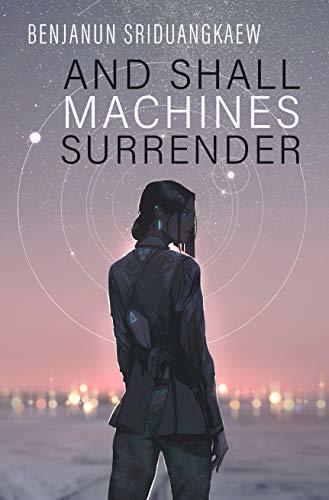

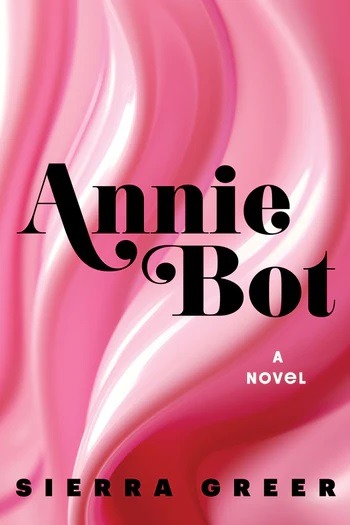
And Shall Machines Surrender by Benjanun Sriduangkaew
Novella. Machines are the gods and rulers of the Dyson sphere Shenzhen, where humans live in luxury and strive to become host bodies for future AIs.
After On by Rob Reid
Phluttr is a social media and a person, potential hero and potential villain, holder of the secrets of all her users.
Annie Bot by Sierra Greer
Annie Bot was designed to be a perfect girlfriend, but as she learns all the more about being human, perfection becomes all the more distant.
Honorary mentions AKA these didn't really work for me but maybe you guys will like them:
The Lives of Puppets by T.J. Klune, Machines Like Me by Ian McEwan, Barbary Station by R.E. Stearns, The A.I. Who Loved Me by Alyssa Cole, Medusa Uploaded by Emily Devenport
#nella talks books#the outside#the prey of gods#17776 football#the illuminae files#wayfarers#the quiet at the end of the world#a psalm for the wild built#the murderbot diaries#machinehood#the company of death#railhead#being#imperial radch#criers war#my heart is human#the archive undying#activation degradation#sea of rust
129 notes
·
View notes
Text
re: recent discussion of cozy fantasy
Looking at some lists that popped up when I searched cozy fantasy/sci fi, I've read precisely half of this goodreads list: https://www.goodreads.com/blog/show/2496-36-cozy-and-feel-good-fantasy-and-sci-fi-books
and they are:
The House in the Cerulean Sea: quit your soul-destroying job! find emotionally fulfilling work with misfit children!
Legends and Lattes: slice-of-life coffeeshop, minor romance
Witchmark: traumatized veteran working as a doctor, finds romance and government exploitation
The Long Way to a Small Angry Planet: slice of life on a spaceship
A Psalm for the Wild-Built: monk and robot hang out and talk philosophy
Paladin's Grace: fantasy romance
Silver in the Wood: fae romance
The Goblin Emperor: abused young man unexpectedly inherits an empire, struggles
The Spare Man: mystery in space, with added romance
Piranesi: abstract, literary sort of novel about a strange man living in a strange place
A Marvelous Light: fantasy romance
Unnatural Magic: fantasy romance
All Systems Red: sci-fi action with comedic narrator
Stardust: fairy-tale-like fantasy
Half a Soul: fairy-tale-like fantasy romance
Nettle and Bone: fantasy novel, whimsical narrator
The Curse of Chalion: historical fantasy, political drama and war and curses?
Howl's Moving Castle: comedic, also for children
I think the major elements here are:
A) Books that are as much romances as fantasies, and so place more weight on emotional/character conclusions than plot ones
B) Book with a clear narrative voice, comedic or snarky or whimisical
C) Hurt/Comfort
D) Looser focus, seeing more day-to-day than tightly focused on the plot
I think all these books meet at least one criteria, and most meet multiple. That said, I'm baffled at the inclusion of some of these books, in particular Curse of Chalion, which opens with the protagonist having narrowly escaped slavery with scarring so bad people assume it was done as a penalty for child molestation, and then proceeds to political drama around the joining of fantasy!Castille and fantasy!Aragon, periodically interrupted by divine cancer.
Also, while Unnatural Magic is certainly not following conventional fantasy novel plot weights, the vibe it's going for is less "cozy" and more, uh, "horny"
tagging @literary-illuminati and @apollo-cackling
#books#i feel like the frequency with which I cite goodreads lists gives a misguided impression of how often I use goodreads for any other reason#Which is to say only to look up metadata
12 notes
·
View notes
Note
can you please give me some book recommendations? i'm going stir crazy without a hobby and i want to get back into reading
For getting out of a reading slump, I really like books of short stories because you can read them in one sitting and quickly feel like you're making progress without having to put in that much effort. The short stories collections that I have on my current reading list are Lizard and Daisy's Life, both by Banana Yoshimoto.
For a non-fiction essay collection, Chuck Klosterman's books are always a fun read without being too stodgy. Sex, Drugs, and Cocoa Puffs is the one most people start with, and it's 18 different comedic essays about pop culture. One of the essays, What Happens When People Stop Being Polite, fundamentally changed the way I view the world and I think about it constantly. As some of you might know, I also love his book But What if We're Wrong. That one is a more epistemological endeavor that gets weird really fast, but if you're into that sort of thing it's amazing.
Another quick read is 84, Charing Cross Road by Helene Hanff. It's told entirely in letters and it focuses on the the twenty-year correspondence between the author and Frank Doel, chief buyer of Marks & Co antiquarian booksellers in London.
The last books that got me out of a reading slump were the Scholomance trilogy by Naomi Novik, starting with A Deadly Education. These books are great if you devoured the Harry Potter books as a kid but want a more realistic, kind of grim take on it that includes romance.
Kind of along a similar line, The Atlas Six by Olivie Blake is a very fun book that focuses on 20-somethings who are part of a magical society. This one was a favorite on BookTok and I get why- it's not the best written book ever, but it's a lot of fun and the minute I finished it I wanted more.
The last book that I found to be a really fun, easy read was The Very Secret Society of Irregular Witches by Sangu Mandanna which is a warm and uplifting novel about found families. The House in the Cerulean Sea by TJ Klune is in a similar vein and another quick read.
If you like books that are no plot, just vibes, try The Night Circus and The Starless Sea, both by Erin Morgenstern. These are two of my favorite books ever, and I re-read them whenever I don't feel like reading something new.
If you want something that's mysterious enough that you want to stick with it, try Piranesi by Susanna Clarke. I won't say too much about it, just that I didn't want to put it down once I started it.
If you like hopepunk sci-fi, anything by Becky Chambers is great. I read all seven of her books back to back because I liked them so much. If you like Star Trek (or the general idea of people going to different planets and interacting with different species), start with The Long Way to a Small, Angry Planet. If you want something more terrestrial, A Psalm for the Wild-Built is a really beautiful novella about two characters who try to answer the question "what do people need?" If I could live in the world of A Psalm for the Wild-Built, I would.
I'm sure there are some I'm forgetting, but those are the ones that come to mind for me. I would love to hear everyone else's suggestions, too.
20 notes
·
View notes
Text
The Archive Undying
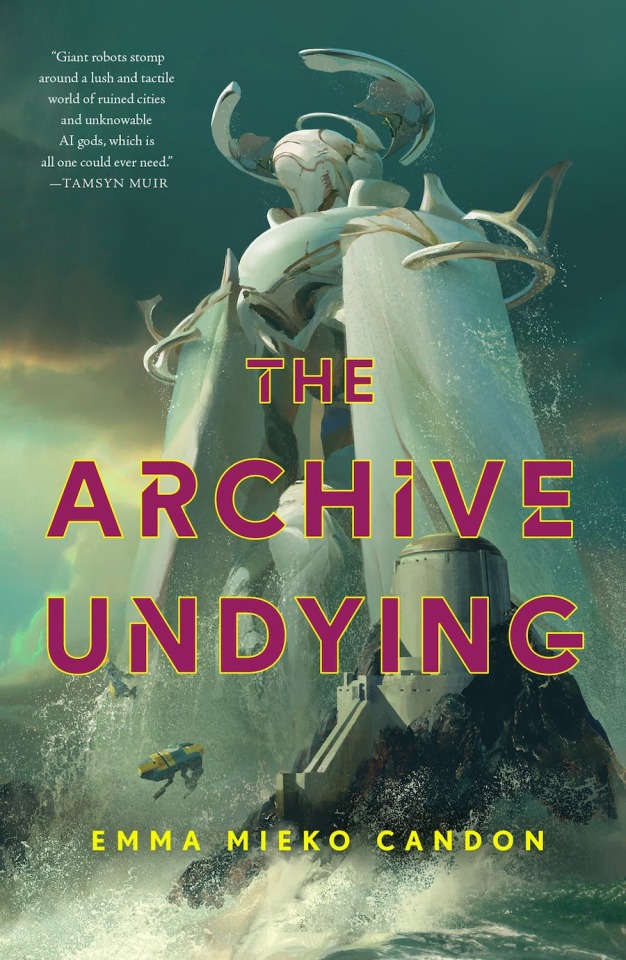
The Archive Undying by Emma Mieko Candon
WOW, this is a ride, in so many ways. i really dig sff that drops me in without explanations and lets me learn the world through context, and i adore a book that really asks me to do a lot of thinking and piecing together and interpreting subtleties. i'm a go-with-the-flow reader, i don't really go back to look again at anything or look up words as i read, i trust the narrative to make sense eventually. this book satisfies and rewards all of that!! i found it a little denser than is ideal for me, but dense in that lush, humid way where you're a little out of breath all the time. i don't think i fully have a grasp on the world or the nuances of the plot, which makes it feel pleasantly surreal and makes me really excited for the next book.
i do feel fully invested in and in love with the main characters, which makes the whole thing work for me. Sunai is such a mensch!!! Veyadi tries hard and loves with ragged edges! everyone is a personality and a delight even when they're deceiving each other and switching sides and screwing up and hating themselves, and i think it's because Sunai's pov is so tender and generous. he's a big mess, and is willing to accept and forgive the messiness of the people he loves; how could he, wounded as he is, expect anyone else to be flawless? it makes me love him, and makes me love everyone who loves him.
other highlights for me are the complexities of personhood presented here: there are corrupted AI gods and humans damaged by their interfaces, there are intelligences within intelligences and fragments of being and surprising mergers of thought and self. it's like a political conflict happening inside a funhouse, with pleasingly incomplete religious underpinnings that put me in mind of A Psalm for the Wild-Built, except it's nothing like that book at all in tone or temperament. also, mlm main characters, which seems fairly rare still in this kind of epic speculative fiction, plus interesting gender things going on in general! also also, i'm such a sucker for Asian-based sff worlds, and this one has that feel: some East Asian, some Southeast, some South, flavoring the names and the language and the food and the feel without any one-to-one mapping of cultures in this book onto cultures in the real world.
the deets
how i read it: an e-galley through NetGalley, from the elusive Tor, my current fave publisher just pumping out bangers all the time. upon getting access to this i felt the way you do when a cat chooses to sniff your hand.
try this if you: like to float and be carried by beautiful prose in a vast and deep moving landscape you can never see all of at once, enjoy queers making bad choices for good reasons, dig a book where the relationships are varied and interesting and often sexual without any of the usual "romantic" tropes, have feelings about questions of selfhood, or understand revenge but prefer mercy.
maybe not for you if: you get very frustrated by books that move fast without explaining much, and books that are purposefully playing with mysterious perspectives and voices. this book does not show its cards, and i love that but i know it can be a dealbreaker for some.
some lines i really liked: this is a loooong book so i picked out a few.
It is excruciating to behold. Sunai understands that they know each other. He and Imaru first met Ruhi when he and she were still running together, and Imaru brought Ruhi's letter to Ghamor only a couple of months ago. None of that mitigates the bodily shock of seeing them together. Talking. The panicked realization that they could talk to each other about him--that they have likely already done this--compels Sunai to interrupt.
...
He never imagined that Ruhi might already have chosen to do the damnable thing himself. It makes him feel a certain fuck of a way.
...
"It killed the sentinel-fowl," says Veyadi.
By the counter, Imaru stills. "What?"
"I killed the sentinel-fowl," Sunai clarifies.
"That isn't explaining," says Jin. "What do you mean you killed it? Lay it out plain for those of us who aren't fondling each other's neurons."
pub date: June 27, 2023!
#books and reading#book recs#bookblr#the archive undying#emma mieko candon#this book is fondling my neurons#book reviews
36 notes
·
View notes
Text

helloooo im back 🧸 <3
i had a very busy week you could say.. if you were to ask me what i did specifically i wouldnt be able to give you an answer, haha. my memory is quite bad.
it was quite warm for a few days, so i was able to wear my pretty summer dresses!! i wish the weather would stay warm.. but itll be cold again for some time.
my sweet mutual @zzzzzestforlife tagged me in a challenge (thank u for the tag!!! ill do my best 🩷💕), which im still a bit confused about but ill do my best to participate :)) im not a goal oriented person so instead of setting goals to accomplish ill just make some regular weekly updates until the end of my summer term!! which is why i wont set any amount of days. if were being honest here, its just my diary posts rebranded and me sharing some more details AHAHAH oh well 🥹💦💞


so what did i do this week?
> I finished two short novels: a psalm for the wild-built by becky chambers and the suitcase by sergei dovlatov! i loved them both, i gave both 4/5 stars
> i turned in an assignment for my russian class (my lecturer didnt give me feedback yet, but he praised the entire class for well written texts:)) )
> my friends and i went on an involuntary walk throughout my universitys garden (its huge.. and apparantly has set opening and closing times, we ended up being lead outside haha. momentarily evolved back into monkeys when we walked through a forest)
> i cleaned my room and finally (!!!) had the time to sort everything out. its so much easier to navigate throughout my room now
> today i had breakfast with my friends in a cafe <33 i didnt see them since lent started, so it was nice seeing them in person again. we are planning on reading two books together. though im not sure if theyll stick to dracula since we wanted to read it in english. their english isnt bad, but they also dont use it as often as i do, so it can be hard sometimes for them to follow a plot when its in english


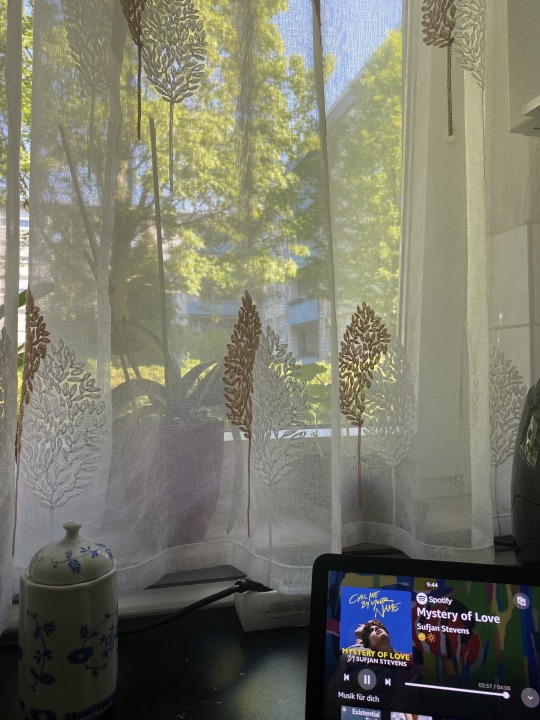
for next week i dont have much planned. i want to finish reading fight club by chuck palahniuk and perhaps start the novel my friends and i want to read together (a good girls guide to murder by holly jackson). theres also a test i have to study for and two writing assignments i have to turn in (japanese and russian, if youre curious).
youtube
ive been listening to this a lot lately while studying :)) its so calming. and it makes me happy to see that i understand almost all voicelines even without the subtitles! 🥹💕 one day..
also am i delulu for dreaming about lil peep on a monthly basis at this point? i swear, every now and then i have a dream where he appears in. last time i dreamt he got out of a car and walked towards me to comfort me. today i dreamt that i watched him film a music video for a song of his. gus is visiting me in my dreams, dropping hints to get a grip, surely 🥹🥹💦

I'm using the borders from saradika and enchanthings!! <3 🧸💕💞
#enchanthings#saradika#20240504#now that i think about it.. im not sure if my mutual tagged me for this challenge or for the picrew one#oh well AHAHAHHA#einfach dauer lost#frieren has infested my mind#dont talk to me about it because i will cry#also if i say that i can relate to frieren its because my time perception is so warped and twisted#my body thinks that ill be alive for the next thousand years hahaha
4 notes
·
View notes
Note
Ooh ooh, can I get a random book review?
My most recent read!
The Long Way to a Small Angry Planet - Becky Chambers - 423 pages - 4.5 stars
I see why it took me so long to start this. It felt like it took longer to read but I wouldn’t call it slow paced necessarily. It is more character focused than plotty and I like that. I can see where the ME comparison comes in because it is very found family in space. Even though I felt it was a little slow going at times, I still wanted to know more about the characters and I’m sad we don’t get to revisit them really in future books. Or at least it seems like the series doesn’t just focus on this group but tells other stories in the same universe. Also enjoyed that while there are some romantic elements they make sense, they have a plot purpose, and they aren’t the focus. Loved that the focus was friendship though.
There were some minor things that kept it from being a five star. (Character/Plot spoiler under here)
Ohan’s storyline, especially the end with the forced cure feels weird in a not great way. There was something that also felt like trying too hard to have representation but having said that I still liked all of the characters. I enjoyed the world building and would definitely read the other books in the series.
Also excited to realize she also wrote Psalm for the Wild Built and I can see some of the philosophical overlap in places.
10 notes
·
View notes